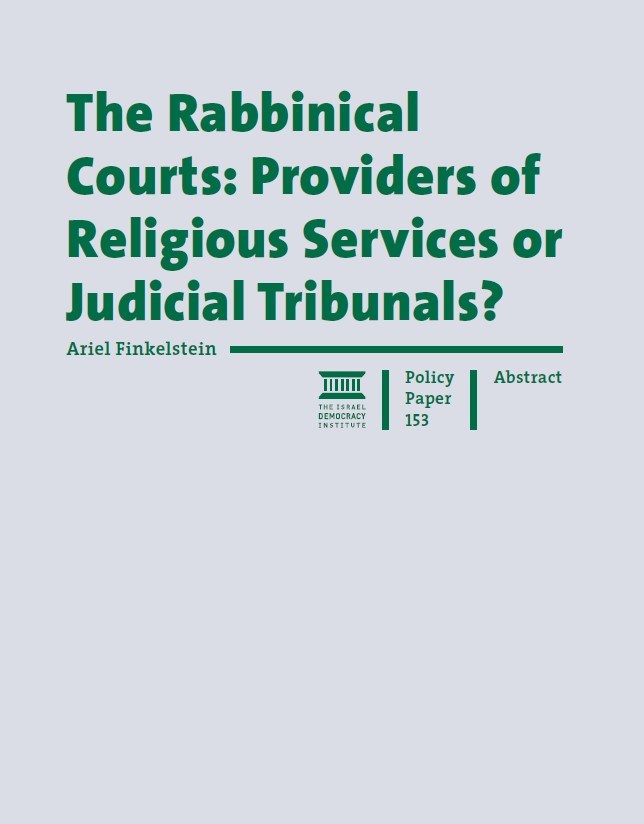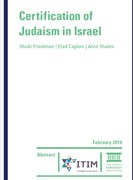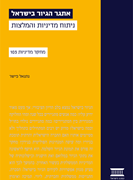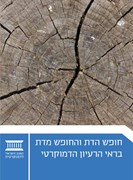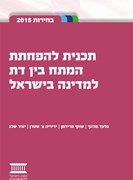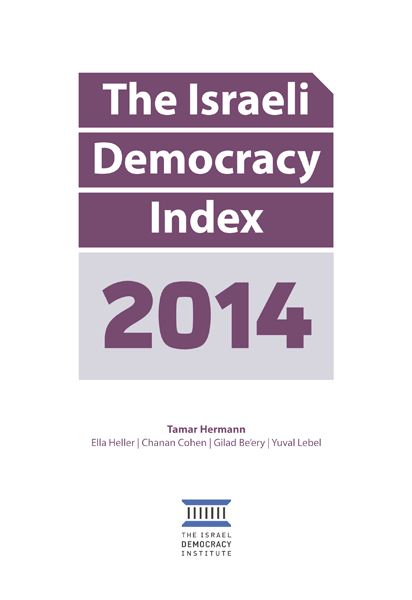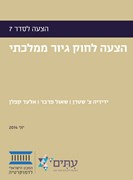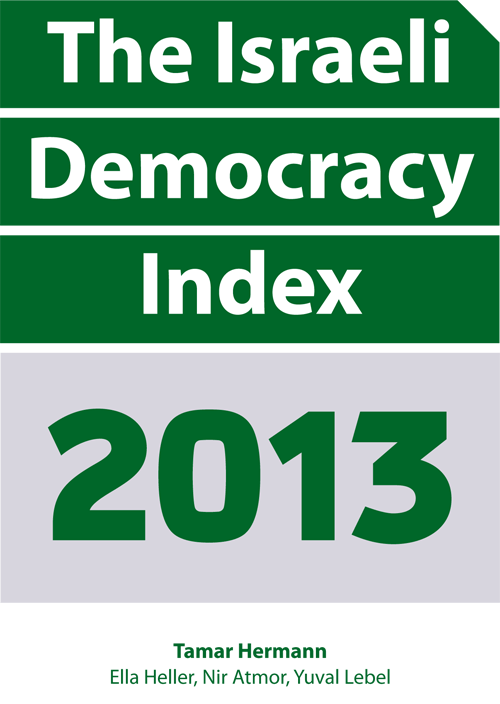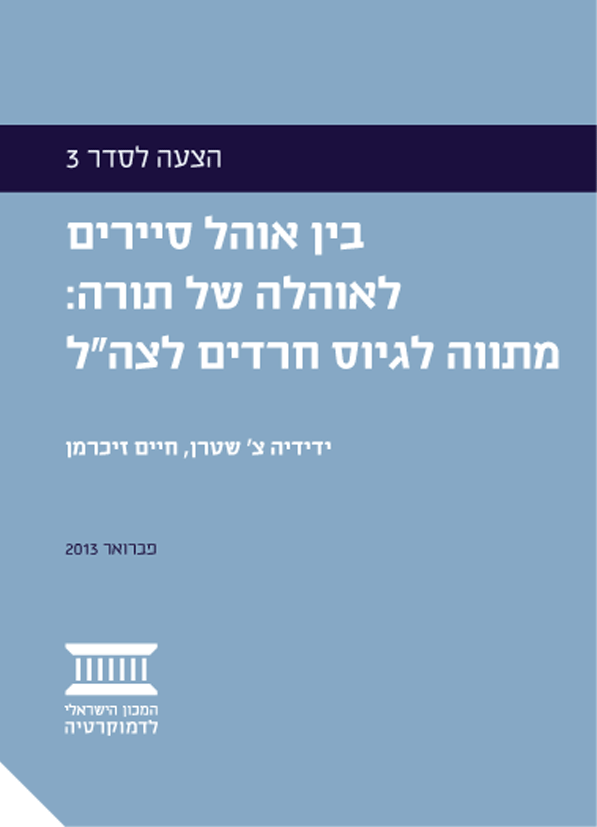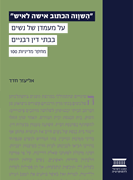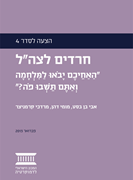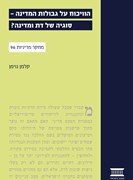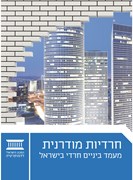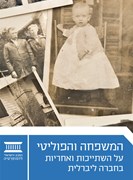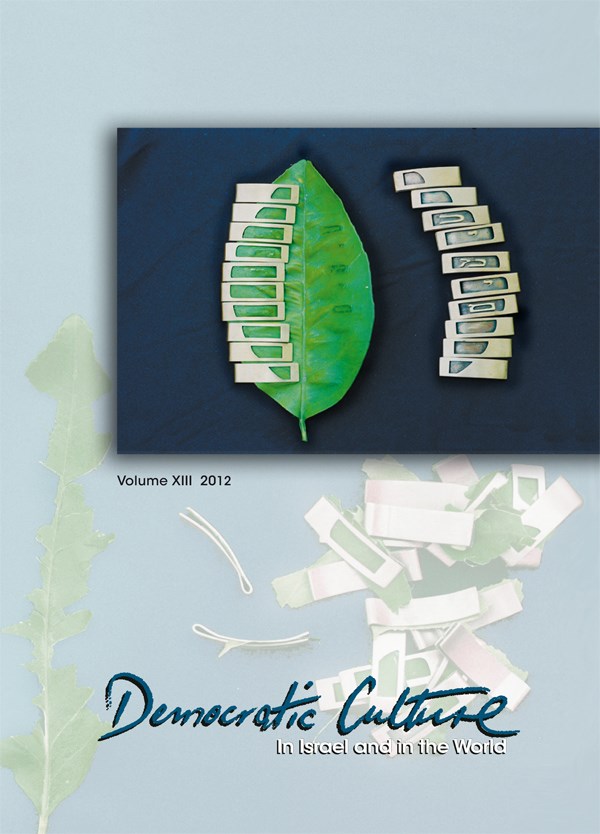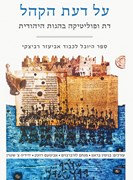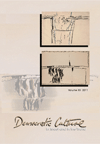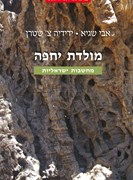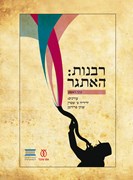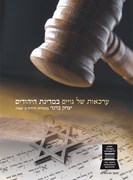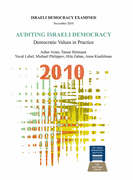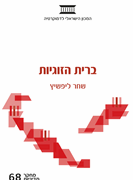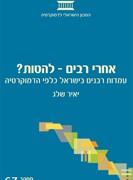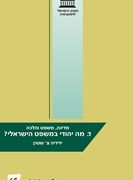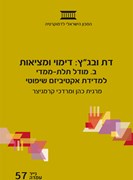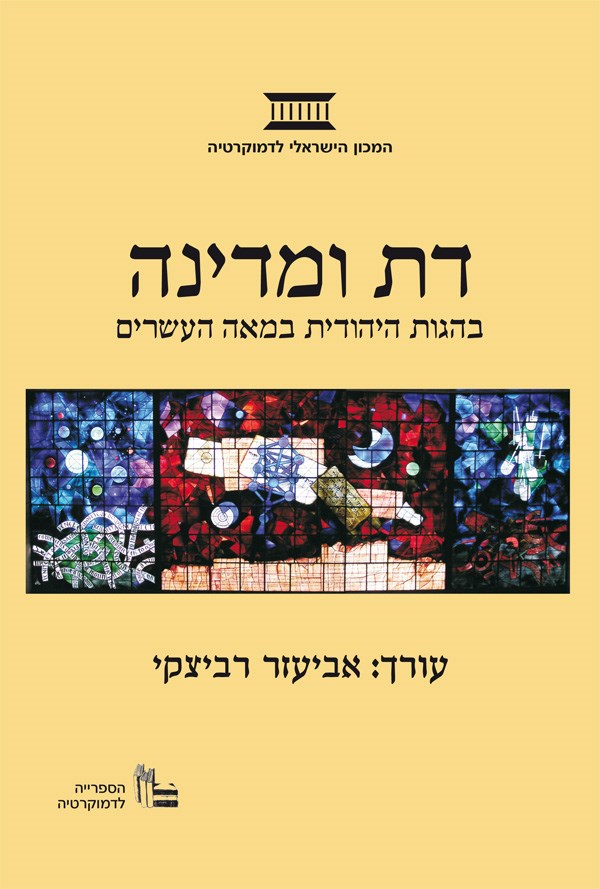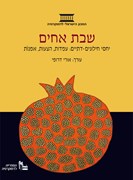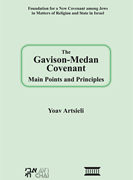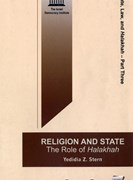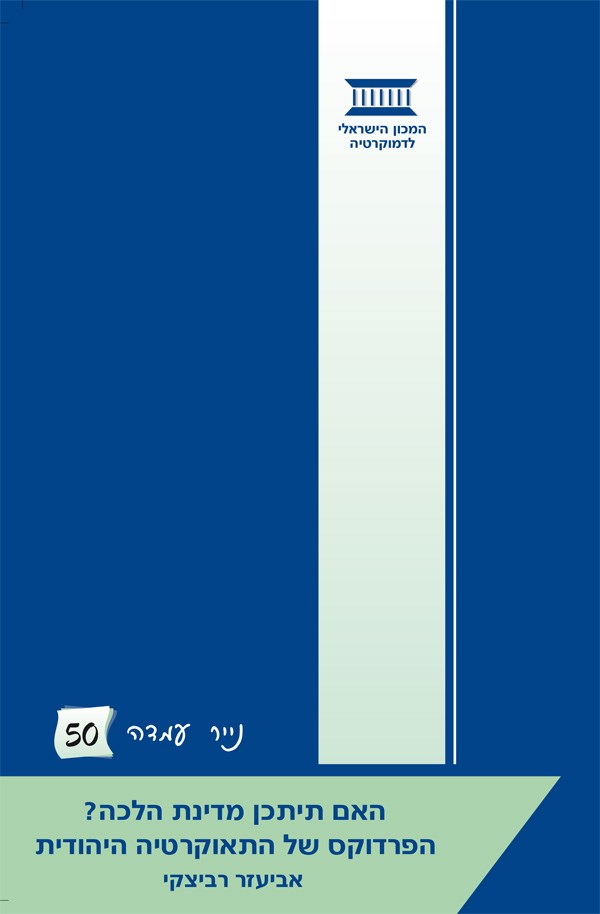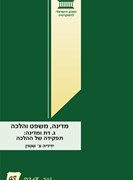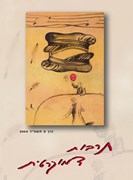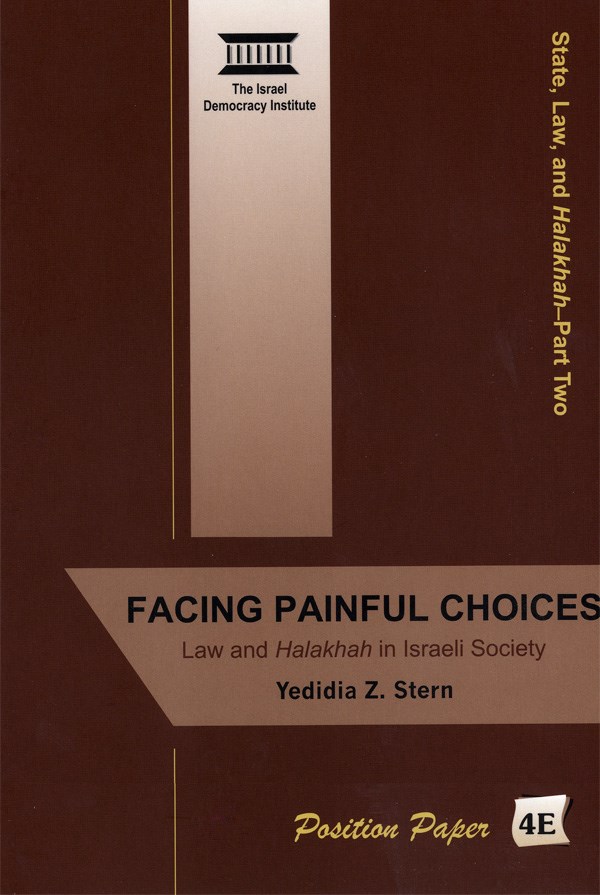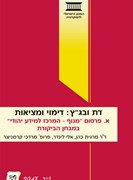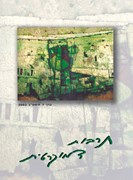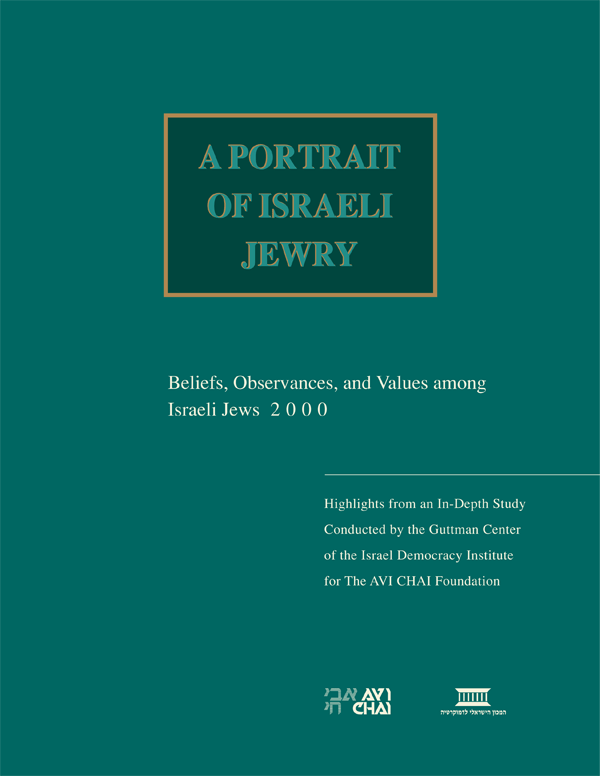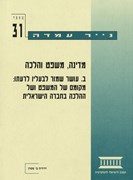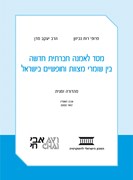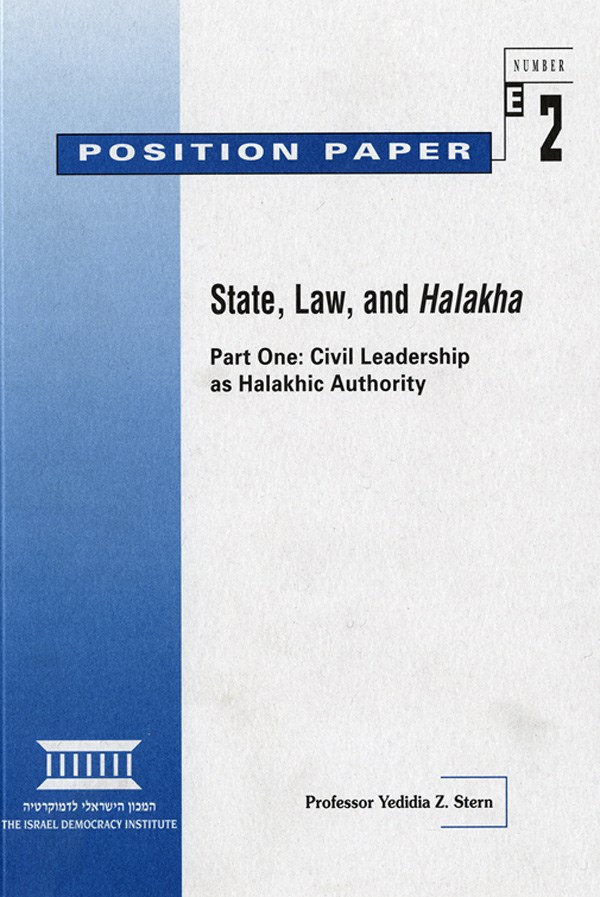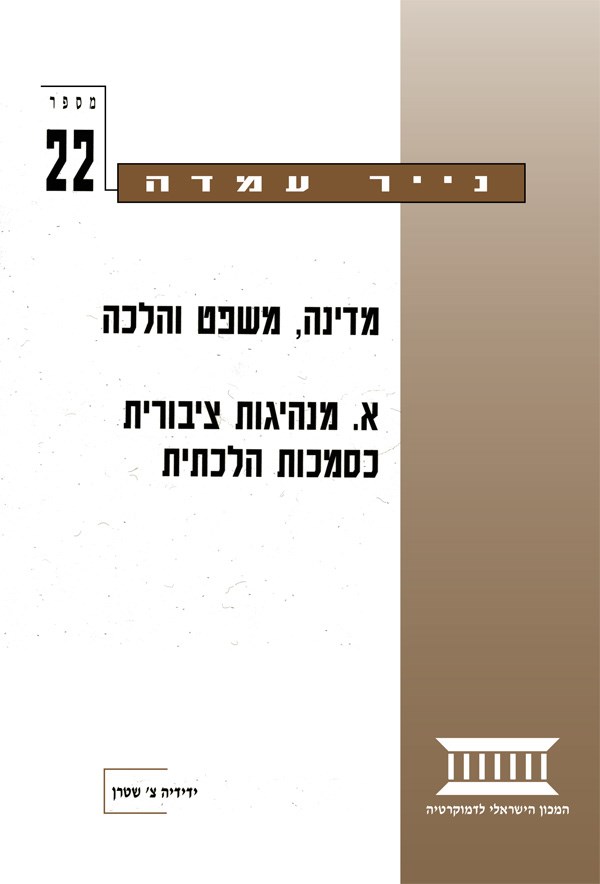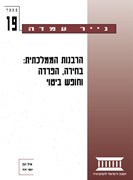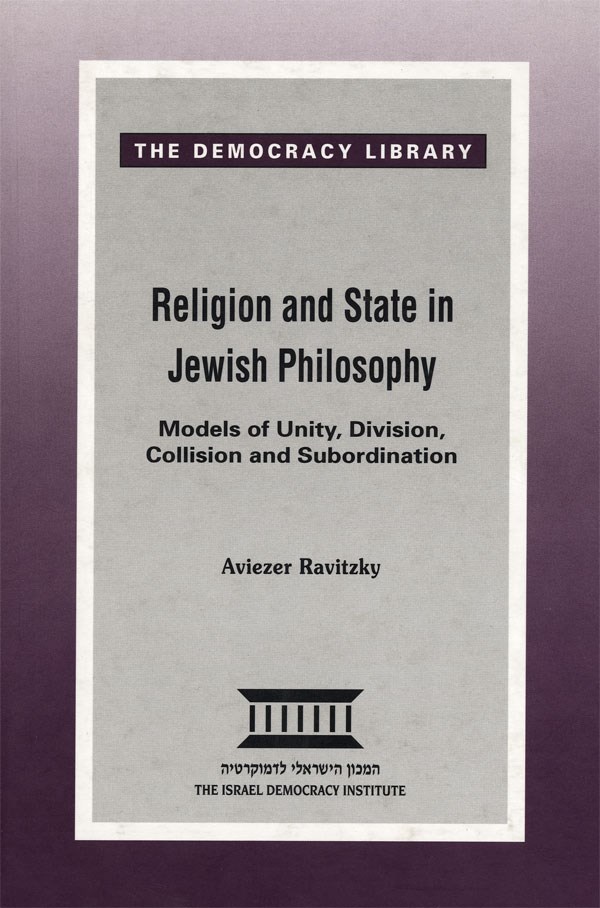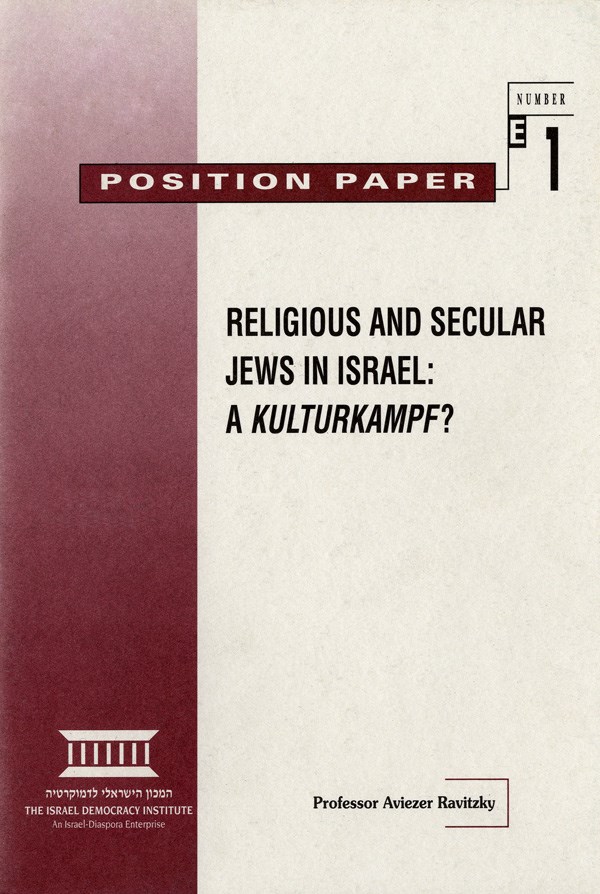

Publications Regarding religion and state
Articles
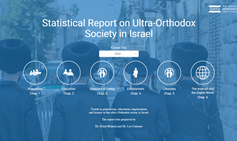
Population
Written By: Dr. Gilad Malach, Dr. Lee Cahaner
First chapter of six of the 'Statistical Report on Ultra-Orthodox Society in Israel'

Education
Written By: Dr. Gilad Malach, Dr. Lee Cahaner
Second chapter of six of the 'Statistical Report on Ultra-Orthodox Society in Israel'

Standard of Living
Written By: Dr. Gilad Malach, Dr. Lee Cahaner
Third chapter of six of the 'Statistical Report on Ultra-Orthodox Society in Israel'

Employment
Written By: Dr. Gilad Malach, Dr. Lee Cahaner, Yael Bachar
Fourth chapter of six of the 'Statistical Report on Ultra-Orthodox Society in Israel'

Lifestyles
Written By: Dr. Gilad Malach, Dr. Lee Cahaner
Fifth chapter of six of the 'Statistical Report on Ultra-Orthodox Society in Israel'

Financial Literacy
Written By: Dr. Gilad Malach, Dr. Lee Cahaner
Sixth chapter of six of the 'Statistical Report on Ultra-Orthodox Society in Israel'

Education
Written By: Dr. Lee Cahaner, Dr. Gilad Malach
Second chapter of six of the 'Statistical Report on Ultra-Orthodox Society in Israel'

Standard of Living
Written By: Dr. Lee Cahaner, Dr. Gilad Malach
Third chapter of six of the 'Statistical Report on Ultra-Orthodox Society in Israel'

Employment
Written By: Dr. Lee Cahaner, Dr. Gilad Malach, Yael Bachar
Fourth chapter of six of the 'Statistical Report on Ultra-Orthodox Society in Israel'

Lifestyles
Written By: Dr. Lee Cahaner, Dr. Gilad Malach
Fifth chapter of six of the 'Statistical Report on Ultra-Orthodox Society in Israel'

Health
Written By: Dr. Lee Cahaner, Dr. Gilad Malach
Sixth chapter of six of the 'Statistical Report on Ultra-Orthodox Society in Israel'

Population
Written By: Dr. Lee Cahaner, Dr. Gilad Malach
First chapter of six of the 'Statistical Report on Ultra-Orthodox Society in Israel'

The Proposed "Softened Rabbis Bill" Complicates the Budgeting Process for Religious Councils
Written By: Dr. Ariel Finkelstein
The recently proposed bill runs counter to accepted budgeting principles and undermines the autonomy of local governance.

The Two Coalitions Israel Needs Now
Written By: Yohanan Plesner
It is increasingly clear that Israel’s future depends on the forging of two coalitions. One is a multinational alliance determined to turn the Palestinian issue from a driver of conflict into an engine of peace. The other, is an internal Israeli coalition ready to pursue a series of bold social, economic, and political reforms.

Haredi Yeshiva Students Are Being Called to IDF Enlistment Centers. What’s Next?
Written By: Adv. Shlomit Ravitsky Tur-Paz, Dr. Eran Shamir-Borer, Adv. Mirit Lavi
On Monday August 5, 2024 and Tuesday August 6, 2024—900 ultra-Orthodox yeshiva students were required to present themselves at IDF enlistment centers. Shlomit Ravitsky Tur-Paz, Dr. Eran Shamir-Borer and Mirit Lavi explain the next steps the IDF will need to take in order to enforce the legal obligation of conscription.

Ultra-Orthodox Conscription | Supreme Court Ruling | Yohanan Plesner on CNN
Written By: Yohanan Plesner
"It's a matter of a change in the trajectory," says Yohanan Plesner, president of IDI following the Israeli Supreme Court ruling on the issue of ultra-Orthodox conscription.

Supreme Court Ruling on Haredi Draft | Yohanan Plesner on BBC News
Written By: Yohanan Plesner
"Basically we've entered into a new unknown terrain," says IDI President Yohanan Plesner.

Principles for a Fair Draft Law
Written By: Yohanan Plesner
Yohanan Plesner, President of IDI lays out the basic principles for a fair draft law.

The Economic Impact of Haredi (non) Enlistment
Written By: Adv. Shlomit Ravitsky Tur-Paz
What are the economic impacts of the Haredi blanket exemption and how would drafting the ultra-Orthodox benefit Israeli society and economy?

Timeline: The Ultra-Orthodox and the IDF Draft
Written By: The Israel Democracy Institute
When did the ultra-Orthodox first receive an exemption from military service? How have Haredi demographics influenced this issue?
This is a timeline of the central milestones affecting the issue of Haredi conscription.
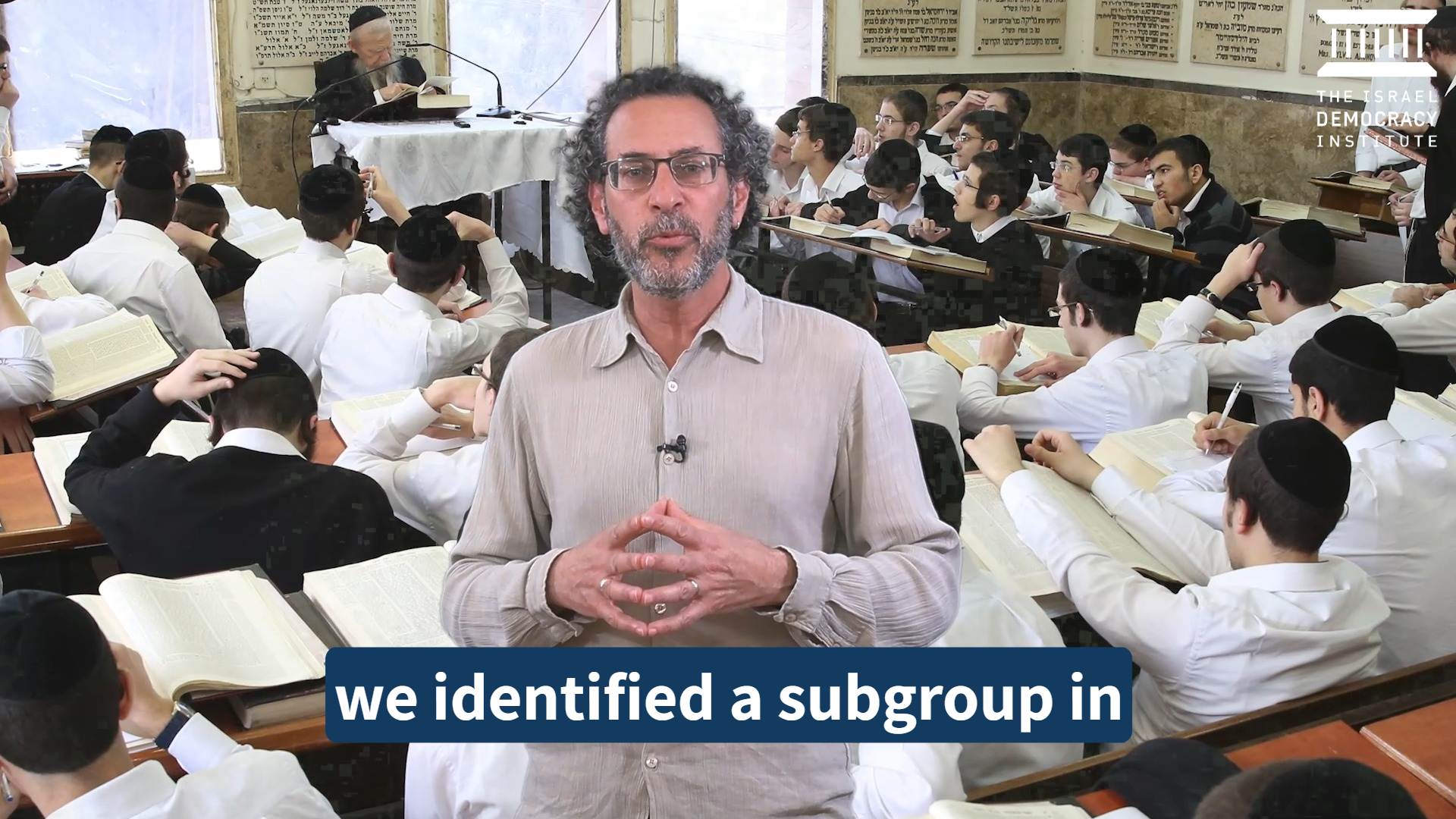
Alternative Yeshivas and Changing Perspectives Among Haredi Youth
Written By: Dr. Asaf Malchi
Dr. Asaf Malchi's research explores the perspective of yeshiva students, their personal and social challenges and highlights a subgroup of 'alterative yeshivas' and their shifting perspectives on vocational training and employment.

A Fair Draft Law, What Would That Look Like?
Written By: Dr. Gilad Malach
IDI's Dr. Gilad Malach explains what a fair draft law for the ultra-Orthodox would look like. One that would distribute the burden over Israel's security more equally while enabling young Haredi men to integrate into the job market.
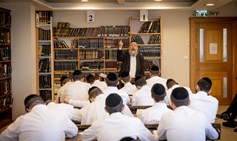
From the World of Torah Study to the World of Work: Social Challenges and Employment Potential Among Haredi Yeshiva Students
Written By: Dr. Asaf Malchi
This study was designed to assess the level of satisfaction among students in higher yeshivot (ages 17 and above), their personal and social challenges, and their attitudes toward possible alternatives to yeshiva studies, such as vocational training and employment.
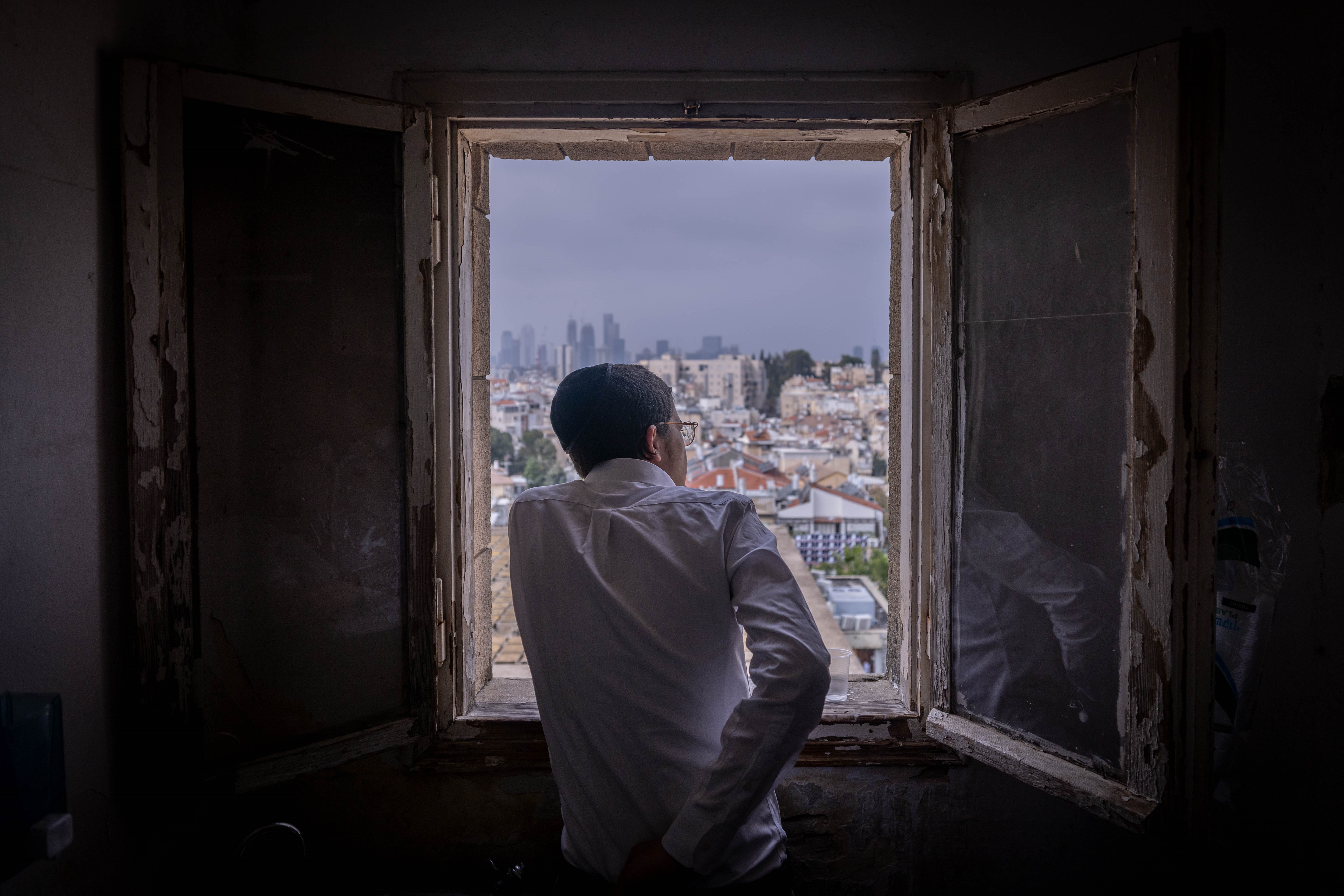
I, Too, Have Come to my Senses: It is Time to Rethink the Haredi Role in Israeli Society
Written By: Dr. Rivka Neriya Ben-Shahar
Dr. Rivka Neriya-Ben Shahar proposes a model that resembles the secular educational system of colleges and universities to identify the most gifted torah scholars, who would receive a generous stipend. Others must rethink their role as part of Israeli society.

Population
Written By: Dr. Lee Cahaner, Dr. Gilad Malach
First chapter of six of the 'Statistical Report on Ultra-Orthodox Society in Israel'

Education
Written By: Dr. Lee Cahaner, Dr. Gilad Malach
Second chapter of six of the 'Statistical Report on Ultra-Orthodox Society in Israel'

Standard of Living
Written By: Dr. Lee Cahaner, Dr. Gilad Malach
Third chapter of six of the 'Statistical Report on Ultra-Orthodox Society in Israel'

Employment
Written By: Dr. Lee Cahaner, Dr. Gilad Malach, Yael Bachar
Fourth chapter of six of the 'Statistical Report on Ultra-Orthodox Society in Israel'

Lifestyles
Written By: Dr. Lee Cahaner, Dr. Gilad Malach
Fifth chapter of six of the 'Statistical Report on Ultra-Orthodox Society in Israel'

Effects of COVID-19, Views on Democracy and the Media, and Religion in Israel
Written By: Dr. Lee Cahaner, Dr. Gilad Malach
Sixth chapter of six of the 'Statistical Report on Ultra-Orthodox Society in Israel'
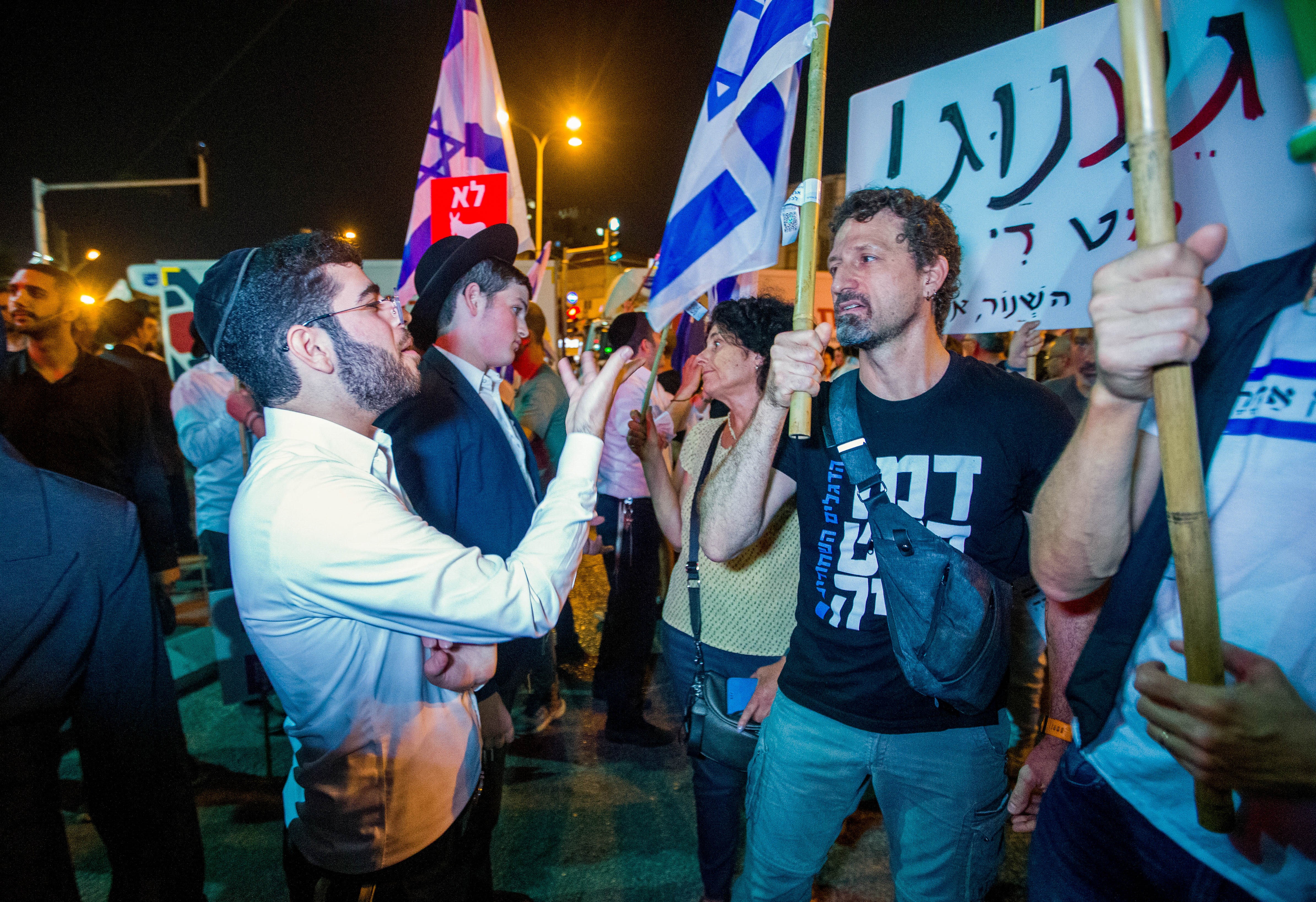
Religiosity Major Influence on Attitude Toward Judicial Overhaul
Written By: Dr. Itamar Yakir
The reform proposal and the resulting protests brought to light and to a large extent also created conflicts on religious and ethnic grounds. The findings of this research reveal a strong relation between levels of religiosity and support or opposition to the judicial overhaul.

71% of Jewish Israeli Don’t Eat Hametz on Passover
While a large majority of Jewish Israelis said they do not eat hametz (leavened bread) on Passover, and a large minority opposes the idea of bringing hametz into hospitals during the holiday, a majority of respondents are opposed to enforcing such a ban and searching the bags of hospital visitors.

Knowledge of Languages, Wellbeing, Transportation and Road Safety
Written By: Dr. Lee Cahaner, Dr. Gilad Malach
Sixth chapter of six of the 'Statistical Report on Ultra-Orthodox Society in Israel'

Population
Written By: Dr. Lee Cahaner, Dr. Gilad Malach
First chapter of six of the 'Statistical Report on Ultra-Orthodox Society in Israel'

Education
Written By: Dr. Lee Cahaner, Dr. Gilad Malach
Second chapter of six of the 'Statistical Report on Ultra-Orthodox Society in Israel'

Standard of Living
Written By: Dr. Lee Cahaner, Dr. Gilad Malach
Third chapter of six of the 'Statistical Report on Ultra-Orthodox Society in Israel'

Employment
Written By: Dr. Lee Cahaner, Dr. Gilad Malach
Fourth chapter of six of the 'Statistical Report on Ultra-Orthodox Society in Israel'

Lifestyles
Written By: Dr. Lee Cahaner, Dr. Gilad Malach
Fifth chapter of six of the 'Statistical Report on Ultra-Orthodox Society in Israel'

Women’s Service in the IDF: Between a ‘People’s Army’ and Gender Equality
Written By: Dr. Idit Shafran Gittleman
Over the years and especially in recent decades, the concept of gender equality has also become relevant to the discussion of military service, and more and more roles have been opened up to women serving in the IDF. Dr. Idit Shafran Gittleman presents an overview of women in the IDF since its establishment.
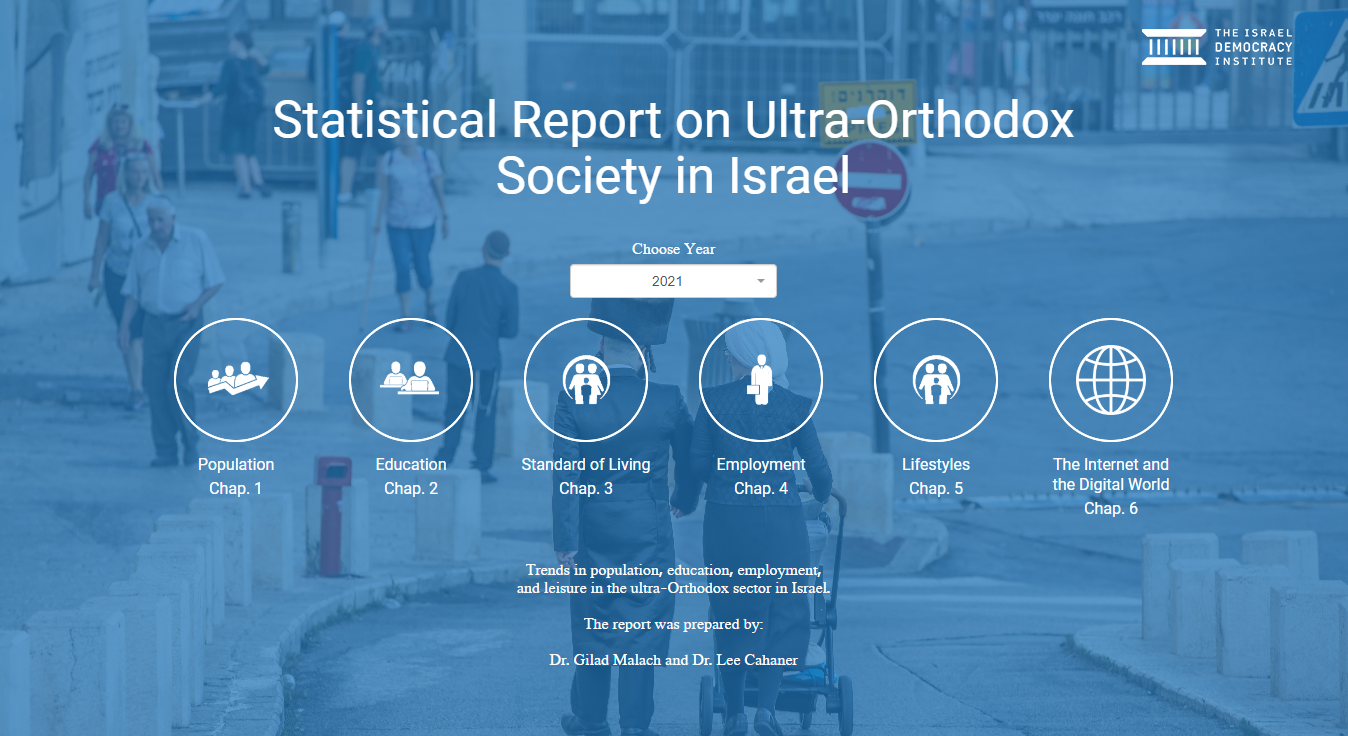
Standard of Living
Written By: Dr. Lee Cahaner, Dr. Gilad Malach
Third chapter of six of the 'Statistical Report on Ultra-Orthodox Society in Israel'

Employment
Written By: Dr. Lee Cahaner, Dr. Gilad Malach
Fourth chapter of six of the 'Statistical Report on Ultra-Orthodox Society in Israel'

Lifestyles
Written By: Dr. Lee Cahaner, Dr. Gilad Malach
Fifth chapter of six of the 'Statistical Report on Ultra-Orthodox Society in Israel'

The Internet and the Digital World
Written By: Dr. Lee Cahaner, Dr. Gilad Malach
Sixth chapter of six of the 'Statistical Report on Ultra-Orthodox Society in Israel'

Population
Written By: Dr. Lee Cahaner, Dr. Gilad Malach
First chapter of six of the 'Statistical Report on Ultra-Orthodox Society in Israel'
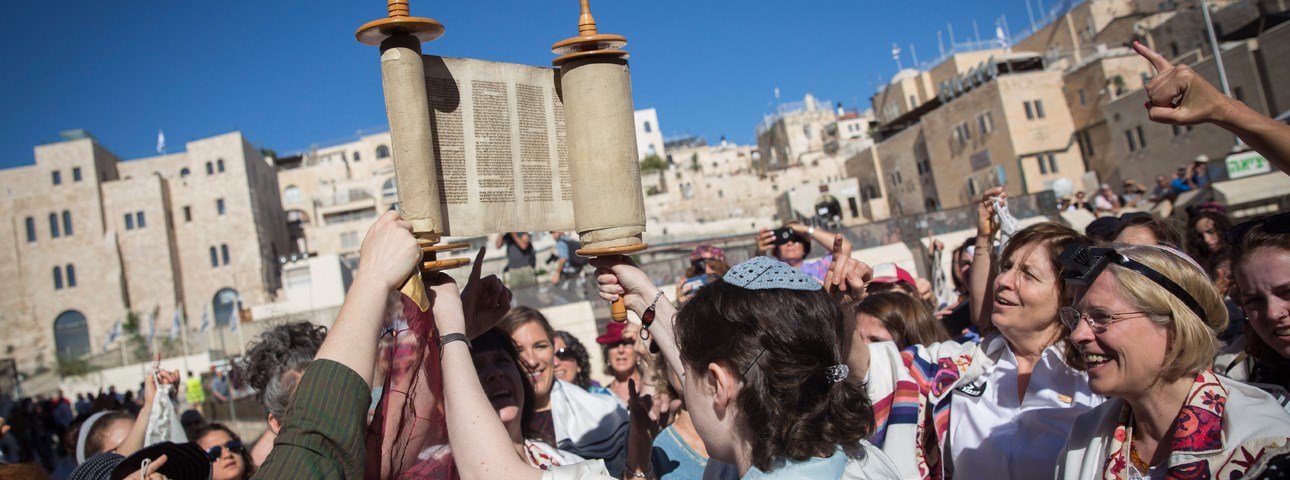
Kotel Compromise Must Be Honored
Written By: Yohanan Plesner , Adv. Shlomit Ravitsky Tur-Paz
The friction and hostility we witnessed today at one of Judaism's holiest sites is unacceptable and could have been avoided if the previously agreed upon 'Western Wall Compromise' had been honored.
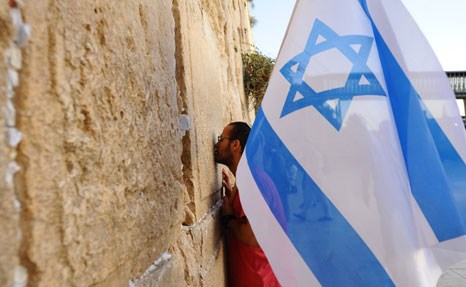
A ‘Change Government?’ Not for Religion and State
Written By: Dr. Ariel Finkelstein
There are many urgent things on the new government's desk - will they have the ability to tackle questions on religion and state?

Education
Written By: Dr. Lee Cahaner, Dr. Gilad Malach
Second chapter of six of the 'Statistical Report on Ultra-Orthodox Society in Israel'
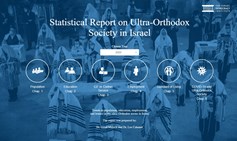
Population
Written By: Dr. Gilad Malach, Dr. Lee Cahaner
First chapter of six of the 'Statistical Report on Ultra-Orthodox Society in Israel'

Education
Written By: Dr. Gilad Malach, Dr. Lee Cahaner
Second chapter of six of the 'Statistical Report on Ultra-Orthodox Society in Israel'

IDF or Civilian Service
Written By: Dr. Gilad Malach, Dr. Lee Cahaner
Third chapter of six of the 'Statistical Report on Ultra-Orthodox Society in Israel'

Employment
Written By: Dr. Gilad Malach, Dr. Lee Cahaner
Fourth chapter of six of the 'Statistical Report on Ultra-Orthodox Society in Israel'

Standard of Living
Written By: Dr. Gilad Malach, Dr. Lee Cahaner
Fifth chapter of six of the 'Statistical Report on Ultra-Orthodox Society in Israel'

COVID-19 and Ultra-Orthodox Society
Written By: Dr. Gilad Malach, Dr. Lee Cahaner
Sixth chapter of six of the 'Statistical Report on Ultra-Orthodox Society in Israel'

The State of Tel Aviv is Founded
Written By: Dr. Shuki Friedman
Tel Aviv wants to set its own policies, regardless of what the rest of the nation desires. It will go it alone, but will still take funds from the national government.
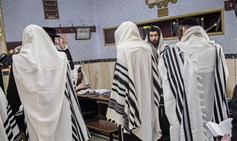
Policy Recommendations for the Minister of Religious Services
Written By: Dr. Shuki Friedman
After three contentious election campaigns Israel's new government has been sworn in. IDI's experts weigh-in with their recommendations on the most important issues on the agenda. Dr. Shuki Friedman on the challenges facing the 35th government in matters of religion and state.
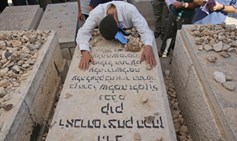
Israel's Third Elections Marks the Defeat of Rabbi Kook’s Dream
Written By: Prof. Yedidia Z. Stern
Let’s imagine a conversation between Rabbi Abraham Isaac Hacohen Kook, religious Zionism’s greatest thinker, and the four Yamina Party leaders.

Towards a New Covenant on Religion and State in Israel
Written By: Dr. Shuki Friedman
After years of struggles over issues related to religion and state, we hereby agree to adopt a new approach, which will create a covenant to provide a new system of arrangements and agreements to strengthen the link between the Israeli public and the Jewish identity of the State of Israel.
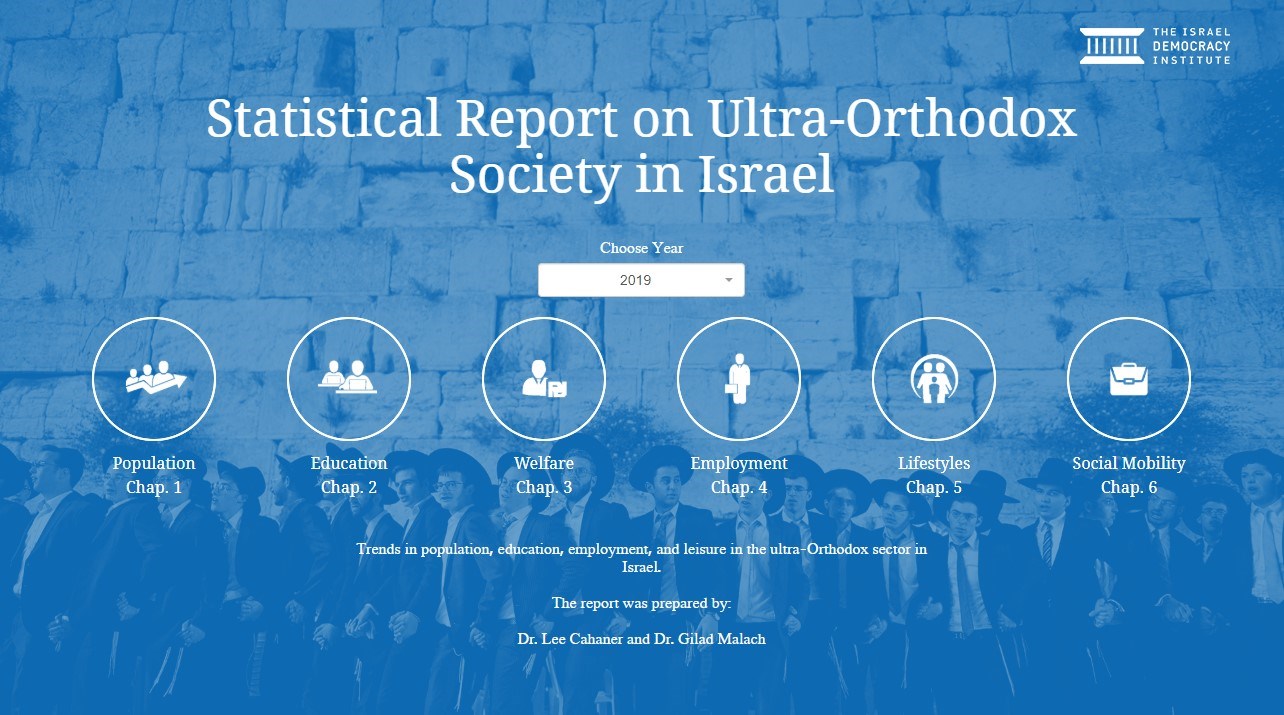
IDF or Civilian Service
Written By: Dr. Lee Cahaner, Dr. Gilad Malach
Third chapter of six of the 'Statistical Report on Ultra-Orthodox Society in Israel'

Employment
Written By: Dr. Lee Cahaner, Dr. Gilad Malach
Fourth chapter of six of the 'Statistical Report on Ultra-Orthodox Society in Israel'

Standard of Living
Written By: Dr. Lee Cahaner, Dr. Gilad Malach
Fifth chapter of six of the 'Statistical Report on Ultra-Orthodox Society in Israel'

Social Mobility
Written By: Dr. Lee Cahaner, Dr. Gilad Malach
Sixth chapter of six of the 'Statistical Report on Ultra-Orthodox Society in Israel'

Population
Written By: Dr. Lee Cahaner, Dr. Gilad Malach
First chapter of six of the 'Statistical Report on Ultra-Orthodox Society in Israel'

Education
Written By: Dr. Lee Cahaner, Dr. Gilad Malach
Second chapter of six of the 'Statistical Report on Ultra-Orthodox Society in Israel'
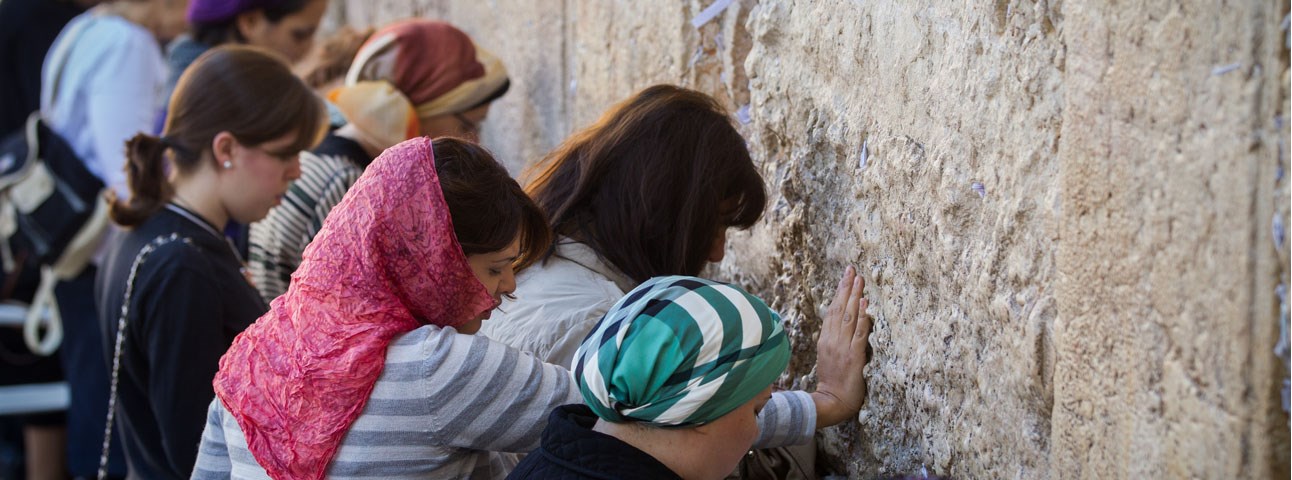
Facing Their Destiny
Written By: Yair Sheleg
All of us face the dread of the unknown future and the fate it holds for us.
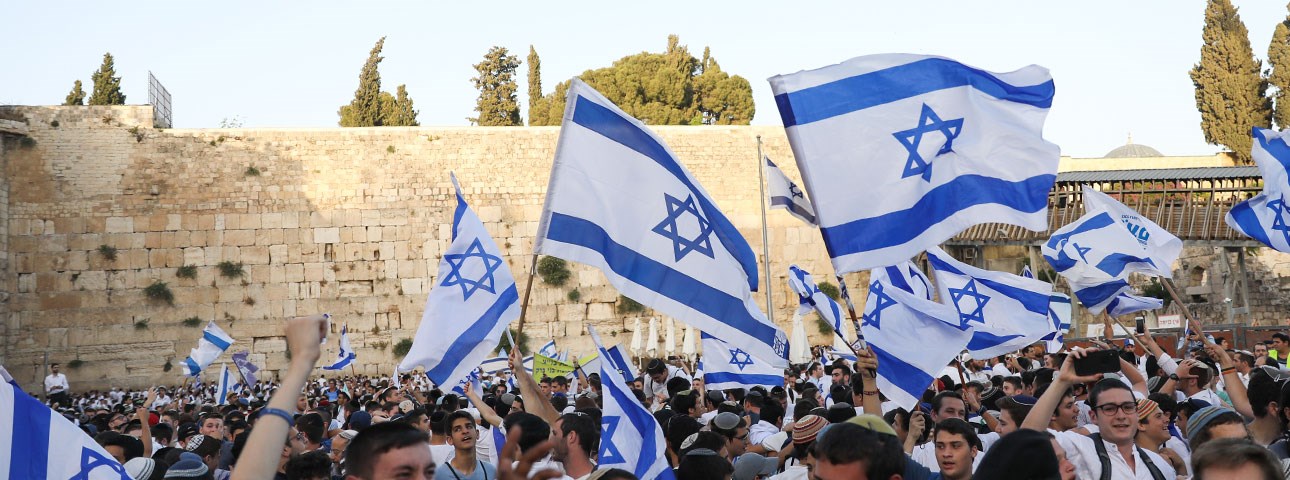
Religion and State: Israelis Seek Change in Existing Arrangements
Even though most Israelis support opening businesses & public transportation on Shabbat issues of religion and state will not decide the September elections
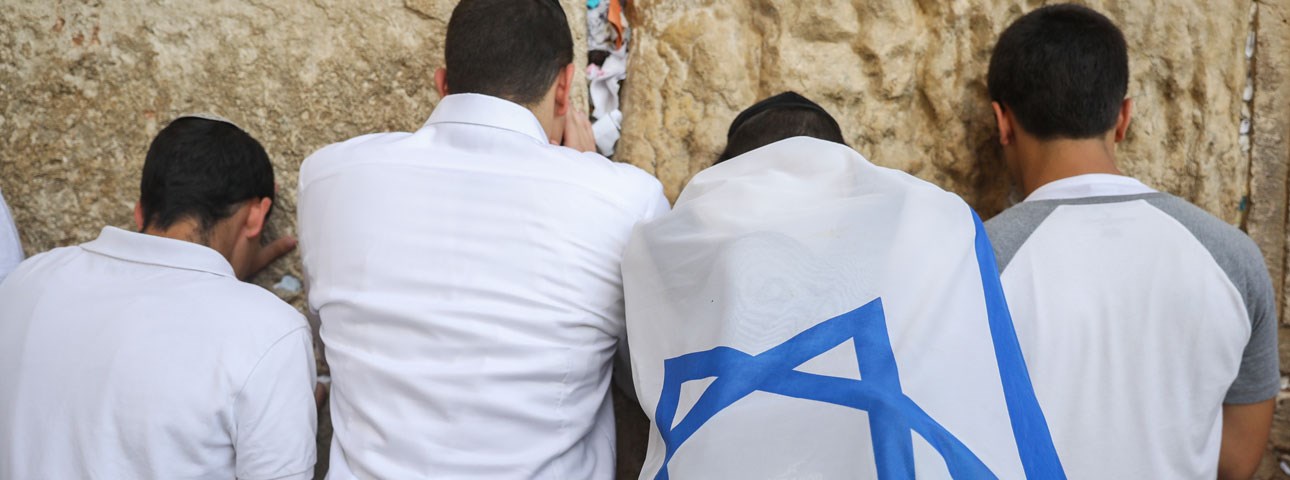
Jewish Identity is Highly Explosive: Handle with Care
Written By: Dr. Shuki Friedman
Many Israeli policies only influence Israeli citizens. But when it comes to questions of Jewish identity, every decision and every statement made reverberates throughout the Jewish world.

DNA Tests for Jewishness
Written By: Dr. Shuki Friedman
In today’s world of big data, it is easy to imagine what the impact would be of a single database containing information about their Jewishness—of Israelis and Jews around the world.
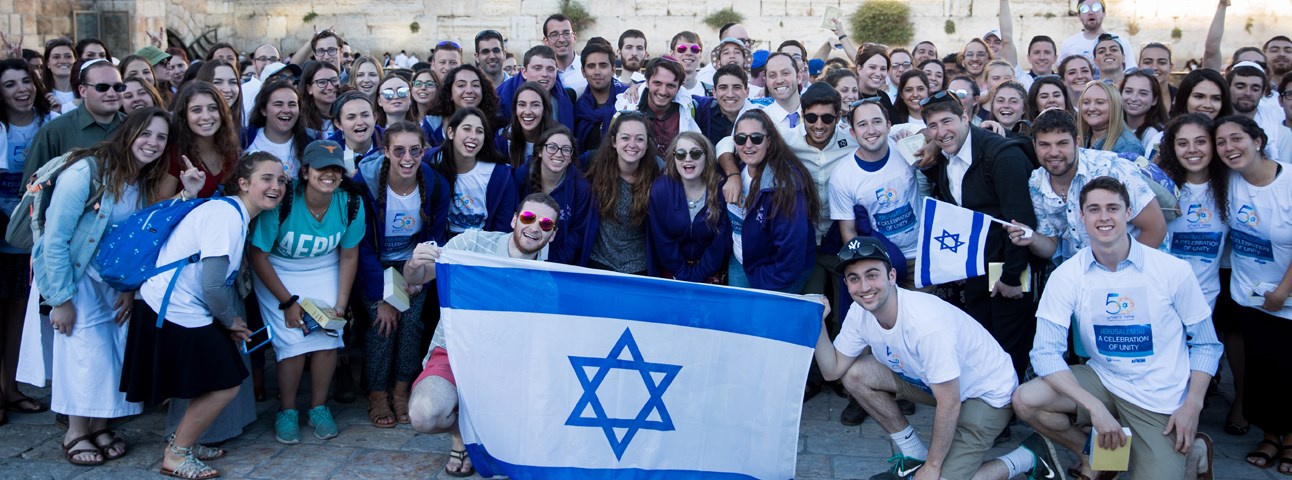
Solidifying the Israel-Diaspora Relationship
Written By: Prof. Yedidia Z. Stern
Is it conceivable, for example, that a legislative body would enact a tax that would never apply, to its own members?
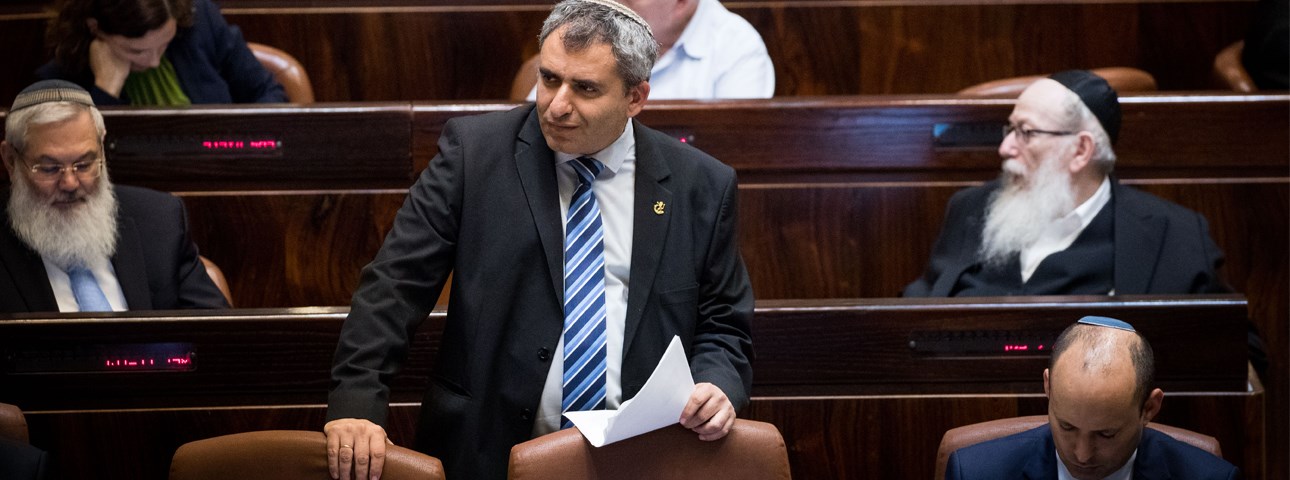
Too Much Religion in the Knesset?
Written By: Prof. Yedidia Z. Stern
The best estimate is that the religious and ultra-Orthodox will account for nearly a third (!) of the next Knesset. Should we be concerned that the Knesset is getting more religious?
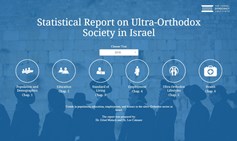
Population and Demographics
Written By: Dr. Gilad Malach, Dr. Lee Cahaner

Education
Written By: Dr. Gilad Malach, Dr. Lee Cahaner

Standard of Living
Written By: Dr. Gilad Malach, Dr. Lee Cahaner
The third out of six chapters of the Statistical Report on Ultra-Orthodox Society in Israel

Employment
Written By: Dr. Gilad Malach, Dr. Lee Cahaner
The fourth out of six chapters of the Statistical Report on Ultra-Orthodox Society in Israel

Ultra-Orthodox Lifestyles
Written By: Dr. Gilad Malach, Dr. Lee Cahaner
The fifth out of six chapters of the Statistical Report on Ultra-Orthodox Society in Israel

Health
Written By: Dr. Gilad Malach, Dr. Lee Cahaner
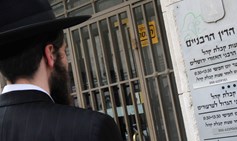
When the Government Provides Religious Services
Written By: Dr. Shuki Friedman
Full separation of religion and state isn't possible, but why is the Chief Rabbinate in the kashrut business?
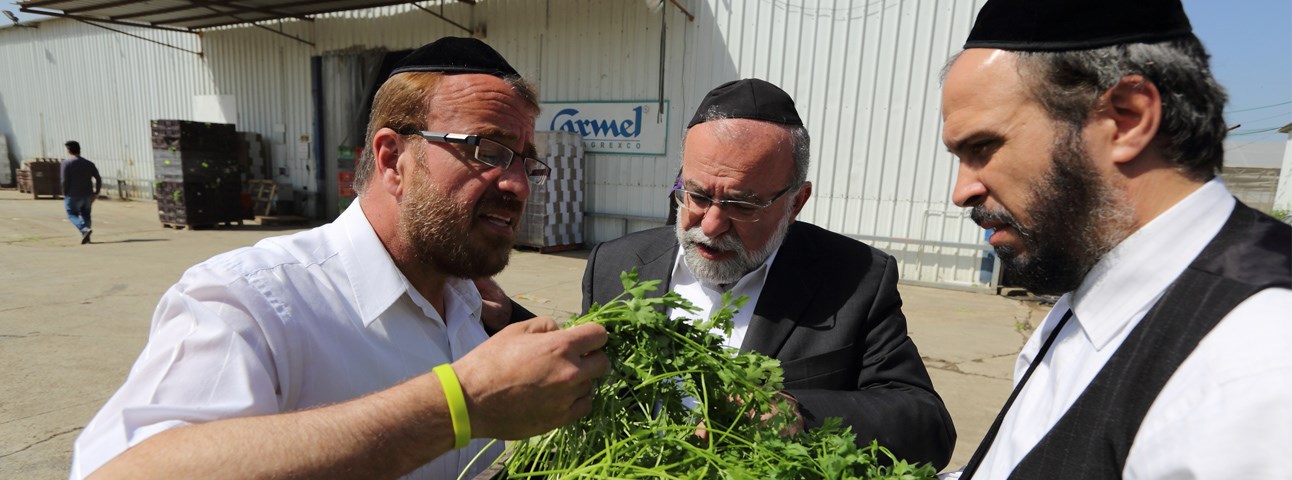
Kashrut Supervision Services Bill
IDI is calling to amend the Kashrut Supervision Bill, so that instead of creating an additional layer of intermediaries, the market will be open, transparent and regulated by Rabbinate authorized rabbis.
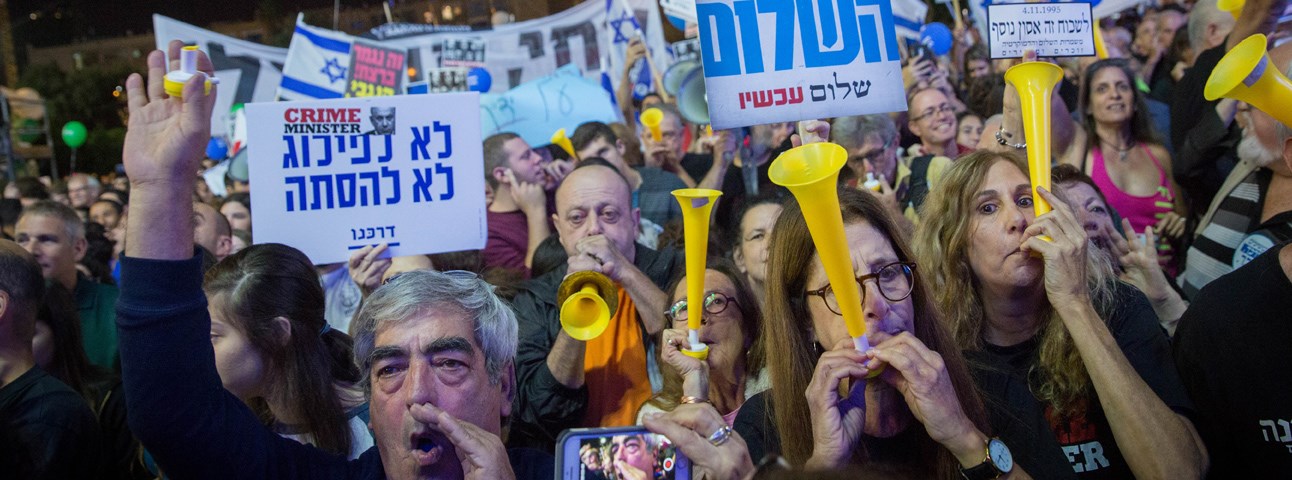
Beit Shemesh and Tel Aviv
Written By: Prof. Yedidia Z. Stern
How despicable is a mob that calls for non-partisanship but is unwilling to listen to a voice that speaks for a majority of Israelis today?
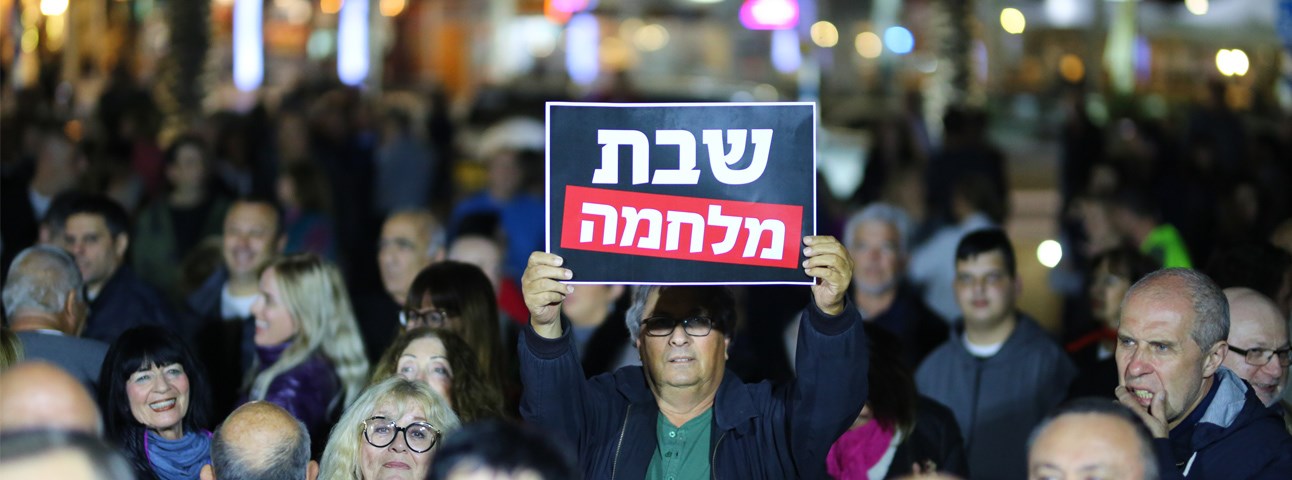
Faith and the City
Written By: Dr. Shuki Friedman
In an op-ed for the Jerusalem Post, Dr. Shuki Friedman, Head of IDI's Center for Religion, Nation and State, explains how local government plays a critical role in balancing religion and state in day-to-day life in Israel.

Shabbat in the City
Written By: Dr. Shuki Friedman, Adv. Gilad Wiener
A recent law stripped local authorities of the power to decide on allowing commercial activity on Shabbat and handed it over to the Minister of the Interior, a development which was met with public uproar. Would it not be better to leave these powers in the hands of the municipalities, which act according to the profile of their resident population? Dr. Shuki Friedman makes the case for leaving these decisions in the hands of the local authority.
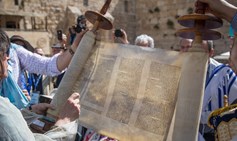
Israel-Diaspora Rift Isn’t As Bad As You Think
Written By: Dr. Shuki Friedman
The rift between the Israeli Jewish community (as opposed to the Israeli government) and the U.S. Jewish community is not as deep as it is portrayed in the media.
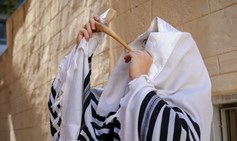
On This Day the World Stands on Trial
Written By: Yair Sheleg
Do we really believe that our fate for the coming year is determined on this day?

Israel Is Repeating The Mistakes That Led To The Temple’s Destruction
Written By: Prof. Yedidia Z. Stern
What message of Tisha B’Av is relevant for life in a sovereign state like Israel? Does the American recognition of Jerusalem as the capital of Israel make the day of mourning for “the city that is in mourning, laid waste, despised and desolate” an anachronism?
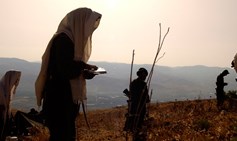
A Kosher Military
Written By: Yohanan Plesner
Yohanan Plesner discusses with Tipping Point the "People's Army". Can a compromise be reached and is "sharing the burden" of military service a realistic goal?
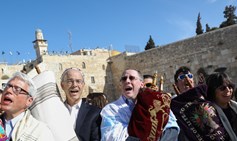
Calling on Our Leaders to Lead
Written By: Prof. Yedidia Z. Stern, Dr. Shuki Friedman
Leading public figures avoid dealing with issues that are of national importance when it entails confronting the ultra-Orthodox community.
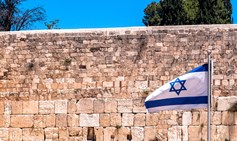
Israelis Are More Traditional Than You Think
Written By: Dr. Shuki Friedman
More than 25 years ago, the “Basic Law: Human Dignity and Liberty” affirmed that Israel is a “Jewish” and “democratic” state but did not define either of these terms in the Israeli context. Now is the time for us to turn to the Jewish identity that has been adopted by a large portion of Israel’s Jews and allow it to shape the country’s Jewish character.
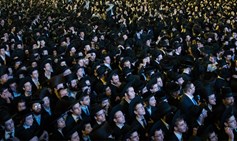
Proposed Draft Bill Puts the “People's Army” at Risk
Written By: Yohanan Plesner
Yohanan Plesner, President of the Israel Democracy Institute cautions that the Ministry of Defense’s proposed draft bill “endangers IDF’s model of service as a “People's Army” based on the principle of mandatory service for all

Proposed Conversion Law
Written By: Prof. Yedidia Z. Stern
Prof. Yedidia Stern, Vice President of the Israel Democracy Institution said that the proposed conversion law is an important step. The state must take responsibility and resolve the issues that affect so many lives
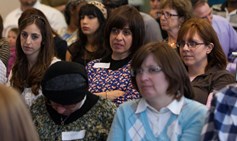
Integrating Women into Politics: Another Solution
Written By: Prof. Ofer Kenig, Dr. Chen Friedberg
The absolute exclusion of women from ultra-Orthodox parties keeps their specific interests from being addressed effectively in the public sphere.
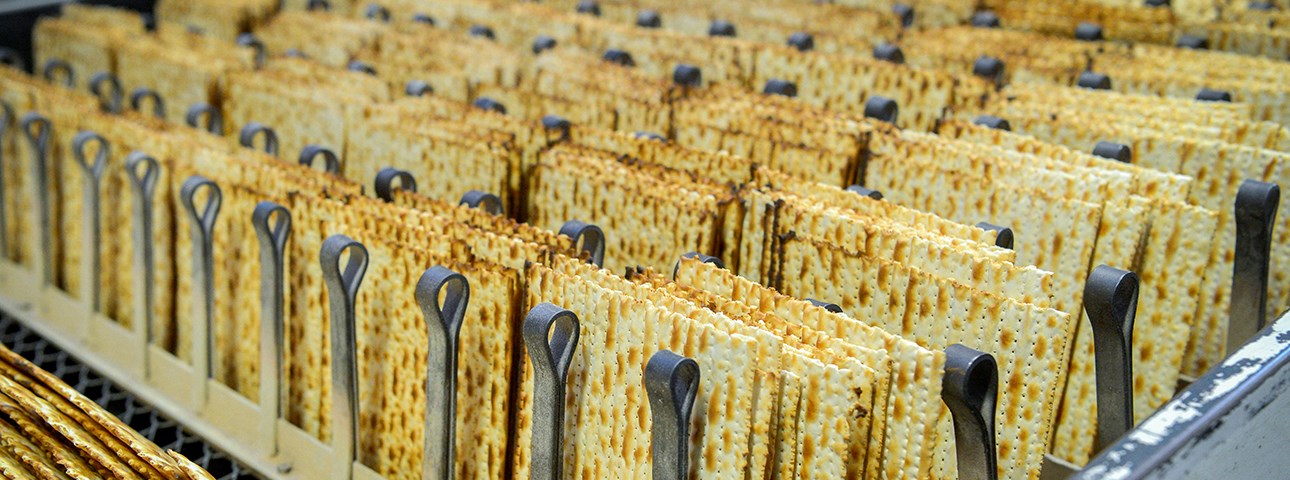
How Many Israelis Keep Kosher for Passover?
Written By: Prof. Tamar Hermann, Prof. Ephraim Yaar
A special update from the Peace Index by Tel Aviv University and the Israel Democracy Institute shows that that two-thirds of the Jews in Israel eat kosher for Passover outside the home and prepare the their house for the holiday - but 58% oppose the ban on cafes and restaurants from serving chametz (bread).
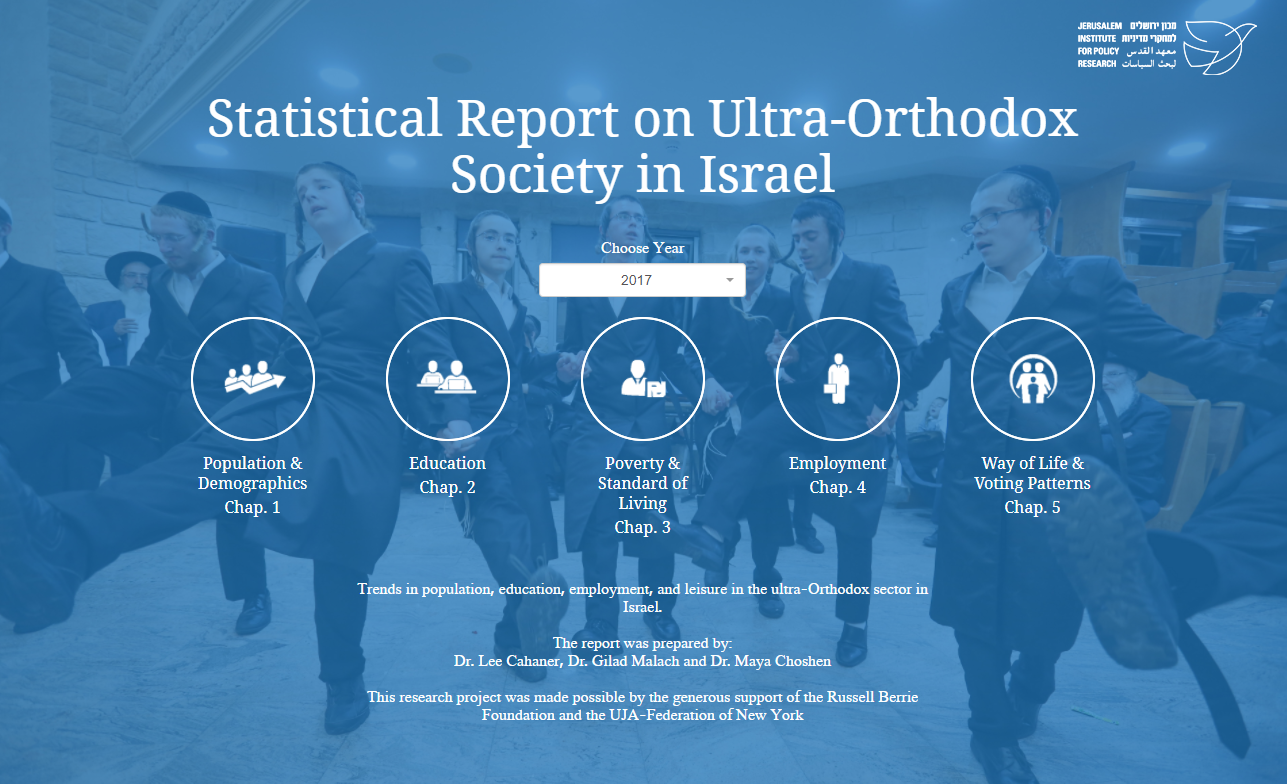
Population & Demographics
Written By: Dr. Lee Cahaner, Dr. Gilad Malach, Dr. Maya Choshen
The first out of five chapters of the Statistical Report on Ultra-Orthodox Society in Israel

Education
Written By: Dr. Lee Cahaner, Dr. Gilad Malach, Dr. Maya Choshen
The second out of five chapters of the Statistical Report on Ultra-Orthodox Society in Israel

Poverty & Standard of Living
Written By: Dr. Lee Cahaner, Dr. Gilad Malach, Dr. Maya Choshen
The third out of five chapters of the Statistical Report on Ultra-Orthodox Society in Israel
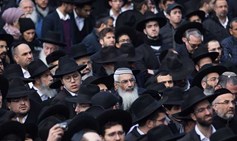
Who’s Afraid of Ultra-Orthodox Israelis?
Written By: Dr. Gilad Malach
Ultra-Orthodox society is moving toward a more Israeli, more modern future, while also maintaining its unique characteristics.
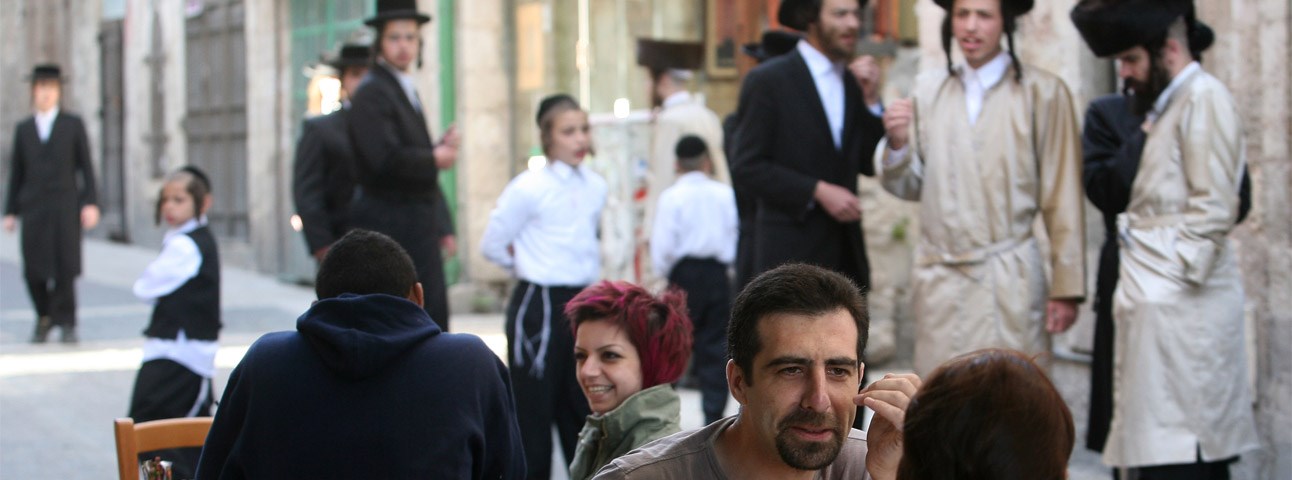
Most want minimarkets, public transport on Shabbat
Written By: Jeremy Sharon | Jerusalem Post
Large majorities of the Jewish public support allowing minimarkets to open and the operation of public transport on Shabbat, a poll by the Israel Democracy Institute has found.
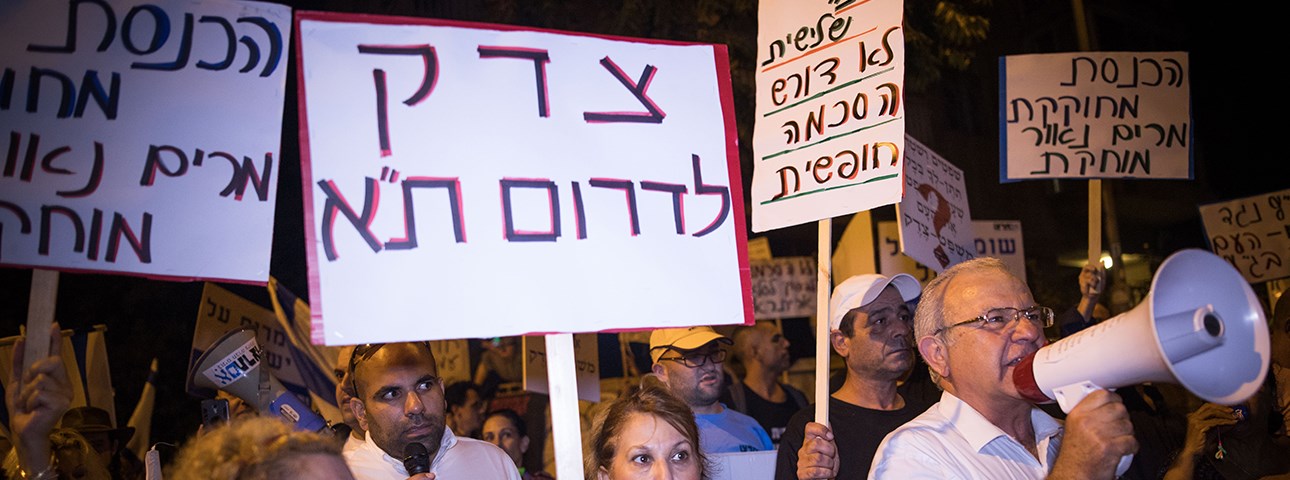
Israelis Support Deportation of Asylum Seekers
Written By: Prof. Tamar Hermann, Prof. Ephraim Yaar
66% of the Jewish public and half of the Arab public support the government’s decision to deport asylum seekers to African countries that are prepared to absorb them.

Women in the Military
Written By: Prof. Yedidia Z. Stern
Prof. Yedidia Stern: "These rabbis, who loudly extol the virtues of Jewish statehood, do not hesitate to drag the people’s army into the arena of conflict with their irresponsible statements."
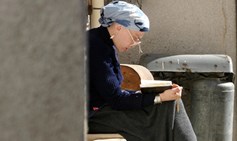
Haredi women lead change
Written By: Dr. Lee Cahaner
Are women leading the change in ultra-Orthodox society or are they preserving their unique way of life? Learn more about the tension between the possibilities that the modern world offers ultra-Orthodox women and the many complex challenges facing them.

Charedi Women Increasingly Having It All
Written By: Michele Chabin | The New York Jewish Week
Growing numbers of ultra-Orthodox women postponing marriage to pursue a career path, new study finds.
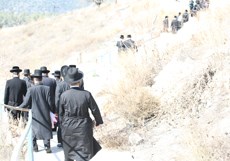
IDI Scholar Responds to Chief Rabbinate’s Blacklist
'There is no justification for preemptively disqualifying all rabbis and approving only those who have proven themselves to be kosher.'

To those Who are Making Decisions about the Future of the Jewish State:
Written By: Yohanan Plesner
In an op-ed first published by The Forward, IDI's president calls on Israeli leaders to empower Diaspora Jews in the crucial debate on identity and faith.
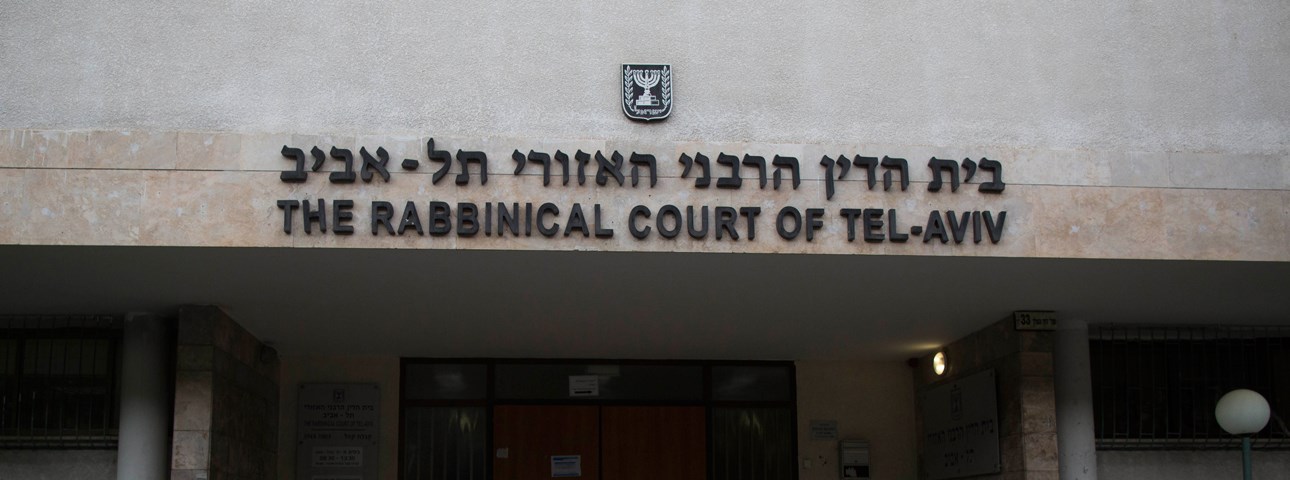
Israel’s ‘Status Quo’ On Religion Is In Chaos
Written By: Dr. Shuki Friedman
The recent challenges at the Kotel are but a symptom of an ever-increasing problem.

New IDI Study Calls for Breaking Up the Religious Councils
Study results: Grave failures in the functioning of the councils and in the religious services they provide
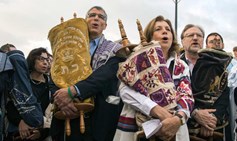
IDI Response to Western Wall Decision
'The longer we fail to give equal rights and recognition to the non-Orthodox streams of Judaism, the deeper the fissure between Israel and Jews of the Diaspora will become'
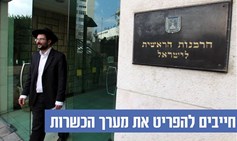
Time to Privatize the Kosher Certification System
In order to grant better, cheaper and friendlier kosher certification, we must privatize the kosher certification system, break up the Chief Rabbinate’s monopoly, and rely on the unwavering market of 70 percent of Israeli Jews in the state who eat kosher food.

The Festival of Freedom and Responsibility
Written By: Prof. Yedidia Z. Stern
The truly great task is to push ourselves to be accountable, personally and nationally, to the question of purpose.

A Threat to the Foundations of Jewish Peoplehood
Written By: Prof. Yedidia Z. Stern
Leaving issues of religion and state to an ultra-Orthodox monopoly is leading to estrangement between Israel and the Diaspora. New arrangements must be reached.

Religion, State, and the Jewish Identity Crisis in Israel
Written By: Prof. Yedidia Z. Stern
Yedidia Stern examines the tension between religion and state in Israel by exploring several key areas of dispute in Jewish Israeli society and politics. This paper was first published by Brookings.

Employment
Written By: Dr. Lee Cahaner, Dr. Gilad Malach, Dr. Maya Choshen
The fourth out of five chapters of the Statistical Report on Ultra-Orthodox Society in Israel
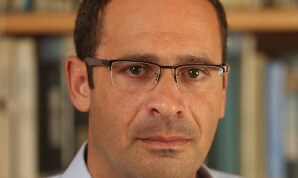
How To Prevent A Religious Civil War From Consuming Western Europe
Written By: Dr. Shuki Friedman
While Europeans are trying to maintain their sense of ownership over the public sphere, restrictions on religious expression in the public domain strike at Muslims’ most basic of rights: to continue living their lives as guided by the dictates of their own conscience. Will there be a religious-based civil war? This article was first published by the Independent Journal Review.
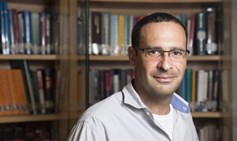
Rosh Hashanah Resolution
Written By: Dr. Shuki Friedman
The upcoming High Holidays are an opportunity to expand our perception beyond our selves and communities. This article was first published by the New York Jewish Week.
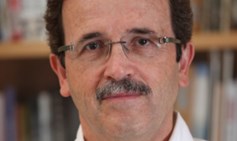
Is Israeli Society Healthy or Afflicted?
Written By: Prof. Yedidia Z. Stern
Rosh Hashanah, the Jewish New Year, is an opportunity to stop and ponder how much we love to forget or forget to love. This article was originally published by the Jewish Journal.
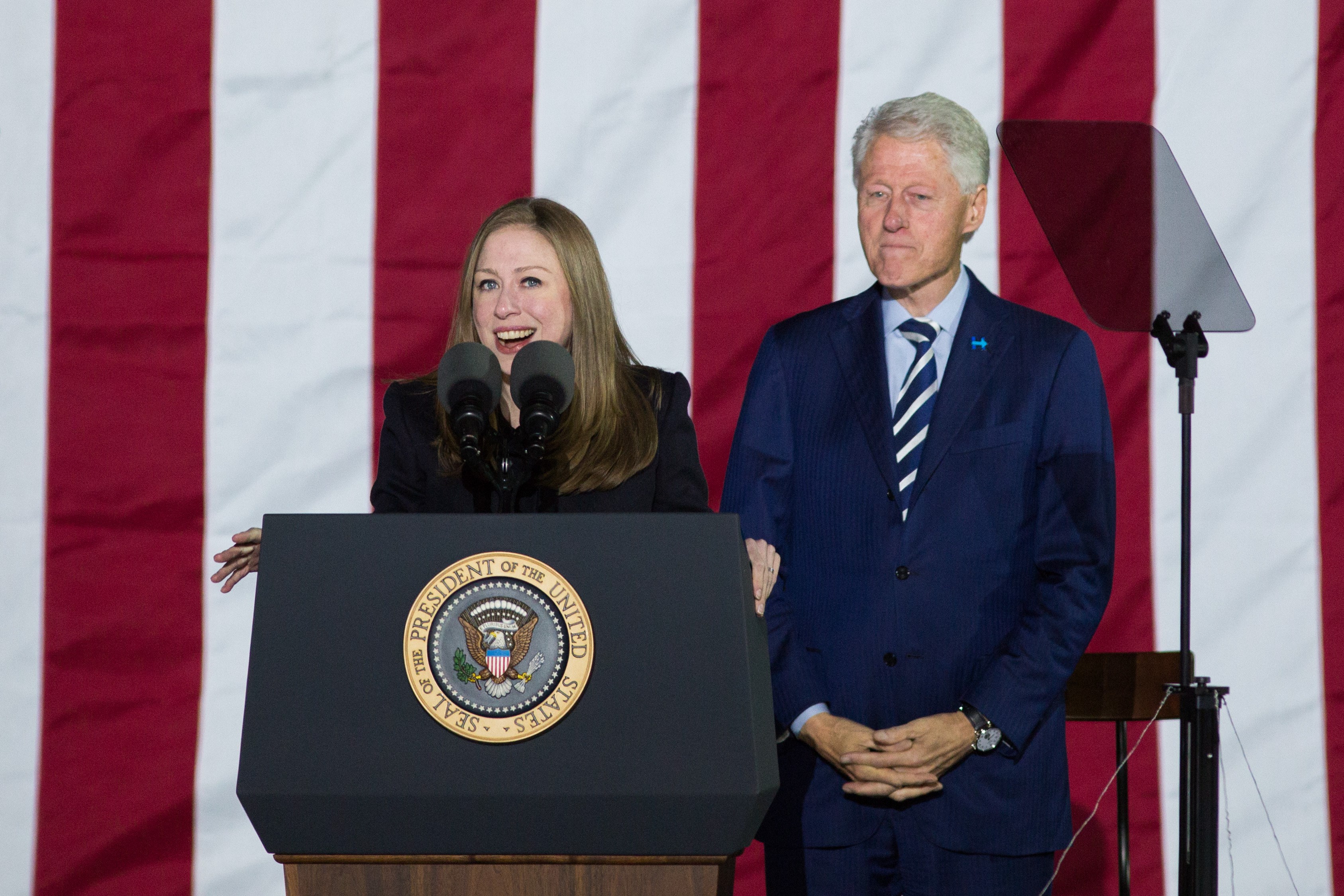
Clinton Could Have Clout Over Israel
Written By: Dr. Shuki Friedman
The expected election of Hillary Clinton as the next president of the United States will affect Israel in a great number of ways, but one of them is rather different and unexpected: Her election will certainly influence the question of religion and state. This op-ed was first published by Haaretz.

A Holy War Over Israel's Character
Written By: Dr. Shuki Friedman
The inflammatory statements made about Reform Judaism at the recent First Zion and Jerusalem Conference are not merely old rhetoric, but rather a national ultra-Orthodox (Hardal) declaration of a holy war against the spread of pluralistic Judaism in Israel.

Head of IDI’s Religion and State Program: ‘It Should be Forbidden to Appoint Rabbis to Senior Posts who Copy-and-Paste Laws from Biblical Times and Apply them to Today’
Head of IDI’s Religion and State Program: ‘It should be forbidden to appoint rabbis to senior posts who copy-and-paste laws from Biblical times and apply them to today’

'The Mikveh Bill Harms the very Ethos of the State of Israel as a State for all Jews,’ IDI Researcher Yair Sheleg
In advance of Wednesday’s discussion in the Knesset Interior and Environment Committee on the Mikveh Bill, the head of IDI’s Religion and State program, Yair Sheleg, sent a policy paper to committee MKs asking them to vote against the bill. He said the bill unacceptably discriminates, something which is known to its sponsors and clear in the bill’s explanatory notes. The legislation was presented by its sponsors in reaction to a Supreme Court ruling that public ritual baths could be used by the wider public, including for non-Orthodox conversions.
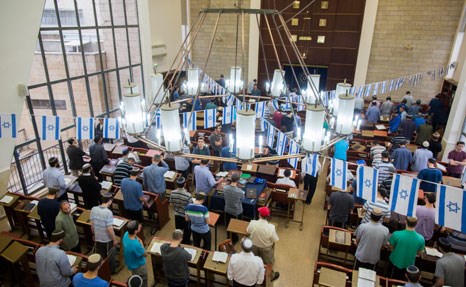
Israel's Battle for Peace Between Religion and State
Written By: Yair Sheleg
The relationship between religion and state in Israel is stormy. Lately, it seems the ultra-Orthodox have launched a new offensive on several fronts. This op-ed was originally published by JNS.org.
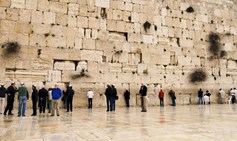
Time to Allow Everyone to Worship at the Foot of the Temple Mount as they Wish
Written By: Prof. Yedidia Z. Stern
No aspect of the current Western Wall plaza arrangement, in which the Orthodox maintain a monopoly, will change if other denominations are allowed to pray at the foot of the Temple Mount in a new plaza. This article was first published by The Jerusalem Post.
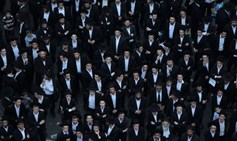
The ‘Religionization’ of Israel is Troubling, but the Fears About it are Hysterical
Written By: Dr. Shuki Friedman
Israel is a Jewish and democratic state. These two characteristics are critical to the country’s existence. This article originally appeared on JTA.org.

An Israeli Shabbat
Written By: Dr. Shuki Friedman
What does Shabbat and its observance look like in the State of Israel? Can every individual enjoy this day of rest in the way he/she chooses? Are there actually individuals who are forced to give up Shabbat as a result of a lack of choice or economic coercion? IDI scholar Dr. Shuki Friedman explains in this article which originally appeared on eJewish Philanthropy.
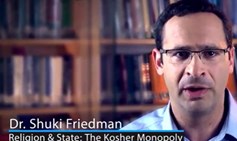
The Kosher Monopoly
Written By: Dr. Shuki Friedman

IDI's Yair Sheleg on the Coalition Agreement
The decision by Yisrael Beiteinu to concede on its demands related to issues of religion and state in order to join the coalition reflects a problematic reality.

Passover To Independence Day: From Miracles To Responsibility
Written By: Prof. Yedidia Z. Stern
The transition between Passover and Israel’s Independence Day is a symbolic transition from a holiday that centers on Godly miracles to a holiday that centers on human actions.

One Year Since the Passing of Rav Aharon Lichtenstein
Today marks the anniversary of the death of Rav Lichtenstein, a noted Orthodox rabbi, rosh yeshiva and authority in Jewish law. Rav Lichtenstein received the Israel Prize for Jewish Religious Literature for 2014.

Yair Sheleg Praises Beit Hillel Document Urging Greater Acceptance of Homosexuals within the Orthodox Community
Yair Sheleg, head of the Israel Democracy Institute's Religion and State program, today reacted to a document presented Sunday by rabbis from the nonprofit Beit Hillel urging greater acceptance of homosexuals within the Orthodox community.

IDI President Yohanan Plesner on the Supreme Court Decision to Recognize Private Orthodox Conversions
Israel Democracy Institute (IDI) President Yohanan Plesner today responded to last week's Supreme Court decision that the state must recognize private Orthodox conversions, calling it inevitable, due to the continued failure of the state conversion institutes.
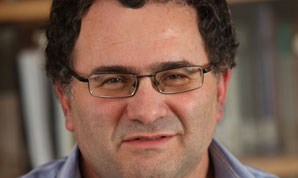
Israel’s Unraveling at the Western Wall
Written By: Yair Sheleg
Yair Sheleg, head of IDI's Religion and State program, argues that there are multiple forms of Jewish identity and that religious coercion should not be used to oppose a reality that history created.

IDI Statement on the "Mikveh Bill"

IDI Program Director Response to Chief Rabbi Yitzhak Yosef
Yair Sheleg says head of Israel's rabbinical court should not take public stances on controversial non-religious issues.

IDI on the Proposal to Overturn the Supreme Court Ruling on Mikveh Use
The proposed legislation was presented by Knesset Finance Committee head Moshe Gafni (United Torah Judaism) and would require that mikvehs be run only in accordance with the directives of the ultra-Orthodox Chief Rabbinate.

The Israel Democracy Institute on the Bill That Would Forbid the Use of Loudspeakers In Houses Of Prayer:
Policy statement: 'The current law already completely provides a way to deal with these kinds of issues, and there is no reason to change it.'

Egalitarian Prayer at the Western Wall
IDI Vice President Yedidia Stern responds to government's January 31, 2016 decision to allow egalitarian prayer at some parts of the Western Wall.

Jewish Unity at Stake: Israel Must Recognize and Fund All Sects of Judaism
Written By: Yohanan Plesner
Prime Minister Benjamin Netanyahu must charge forward and turn his words into action. Only then will he be able to guarantee his vision of Israel as “a source of unity for our people.” (This article was first published by JNS.org.)

Praying with 'Sinners'
Written By: Prof. Yedidia Z. Stern
In a poetic piece written for Yom Kippur, IDI Vice President Prof. Yedidia Stern asserts that prayer should echo the existential human experience, reflect the ongoing dialogue with alternative cultures, and allow the individuals praying to bring their whole selves into their prayer.
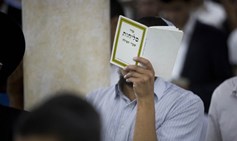
An Israeli Version of Repentance
Written By: Prof. Yedidia Z. Stern
The High Holy Days are a time of reflection and personal growth. But since the founding of the State of Israel, personal repentance is no longer enough. IDI Vice President Yedidia Stern stresses the need to transform Jewish traditions from the personal sphere to the public sphere and calls for collective, national repentance, Israeli style.
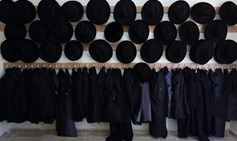
Israel Should Recognize Judaism's Main Denominations
Written By: Yohanan Plesner
IDI President Yohanan Plesner writes that Reform, Conservative, Orthodox, Reconstructionist and secular Jews are all members of the Jewish people. The Israeli government must grant equal recognition to the central movements within Judaism, including equal funding for all.

Should Jews Pray on the Temple Mount Today?
Written By: Prof. Yedidia Z. Stern
Professor Yedidia Stern argues that the question of how we should relate to the Temple Mount is more complex than any other issue on the public agenda in Israel. This question must be discussed in three parallel dimensions—religious, national, and liberal. This poses a serious challenge, which must be approached with the utmost sensitivity.

Keeping Kosher: By Faith, Not By Force
Written By: Dr. Shuki Friedman
To what extent should the Rabbinate interfere in a citizen's plate? Dr. Shuki Friedman, argues that kosher supervision should be based on trust not coercion, and warns that the attempt to preserve the Chief Rabbinate's monopoly on the kosher laws is a symptom of a larger problem.
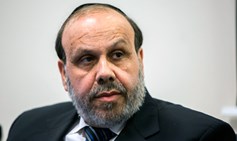
An Open Letter to the New Minister of Religious Services
Written By: Dr. Shuki Friedman
As the new government begins its work, Dr. Shuki Friedman, Director of IDI's Center for Religion, Nation and State offers recommendations to MK David Azoulay, Minister of Religious Services, on how to keep the rabbinate relevant and improve its standing in Israeli society.

Shemitat Kesafim: The Year of Escape from Debt
Written By: Prof. Benjamin Porat
Dr. Benny Porat discusses the precept of debt cancellation during the sabbatical year (Shemita) and proposes ways in which to update this practice to suit the economics of contemporary Israel and create a model society.

A Ready Alternative to the Nation State Law
Written By: Dr. Amir Fuchs
IDI researcher Dr. Amir Fuchs criticizes the proposed Basic Law that would establish Israel as the nation state of the Jewish people and recommends accepting Israel's Declaration of Independence as the preamble to Israel's future Constitution instead.

Is There a Place for God in the Israeli Army?
Written By: Prof. Yedidia Z. Stern
In an article in the <em>Jewish Week</em>, IDI Vice President Yedidia Stern discusses the question of whether it is appropriate for commanders to use religious rhetoric in motivating their soldiers, and stresses the need for the Israeli army to represent all.

The IDF’s Fighting Ethos in the Wake of Operation Protective Edge
Written By: Yohanan Plesner
IDI President Yohanan Plesner stresses the need to ensure that the Israel Defense Forces remains at the heart of the Zionist consensus so as to enable it to continue to be the army of all citizens of Israel.

Shmita: Rest, Share, Release
Written By: Prof. Yedidia Z. Stern
An exploration of the existential, social, and economic dimensions of the Shmita year, that calls for bringing together social, moral, cultural, religious and national forces to implement the idea of Shmita in non-agricultural and national contexts in Israel.

The IDF: Army of the People or Army of God?
Written By: Prof. Mordechai Kremnitzer
IDI Vice President Prof. Mordechai Kremnitzer addresses the question of the appropriateness of the letter that Givati Brigade commander Col.Ofer Winter sent to his subordinate officers as Israel prepared for the ground incursion in Gaza in the summer of 2014.
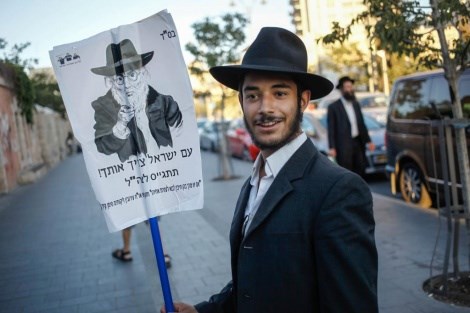
Ultra-Orthodox Integration: It Takes Two to Tango
Written By: Haim Zicherman
In an op-ed in Ynet News, IDI researcher Dr. Haim Zicherman discusses the steps that Israeli society must take in order to enable ultra-Orthodox men to integrate into the Israeli army and workforce.

Israeli Views of Diaspora Jewry 2014
Written By: Mr. Chanan Cohen, Ella Heller, Prof. Tamar Hermann
How do Jews in Israel see their connection with Jews in the Diaspora? In preparation for the first <a href="http://jms.org.il" target="_blank">Jewish Media Summit</a> (JMS), IDI's Guttman Center for Surveys conducted a survey of the attitudes of Israeli Jews toward Diaspora Jewry.
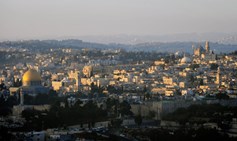
A Royal Sanctuary: Three Scenes for Jerusalem Day
Rabbi Dr. Benjamin (Benny) Lau presents three snapshots from different times and places, reflecting on a city that combines ancient and modern, sacred and secular, eternal truths and ordinary life.
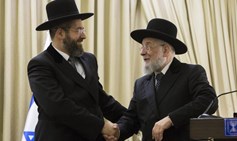
Reinventing the Chief Rabbinate
Written By: Ayelet Libson
In an article in <em>The Jewish Week</em>, Ms. Ayelet Libson of IDI's Human Rights and Judaism project questions the role of the Israeli Chief Rabbinate and offers her view of what it could be.
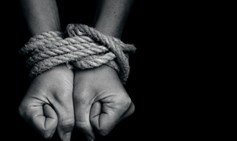
Who is Responsible for Finding a Solution to the Plight of Mesoravot Get?
Written By: Prof. Shahar Lifshitz
Prof. Shahar Lifshitz outlines what halakhic authorities and the Knesset can do in order to resolve the issue of get refusal, as discussed at the Second Agunah Summit.

The IDF and the Ultra-Orthodox
Written By: Haim Zicherman
As the Knesset prepares to vote on the "Draft Law" designed to regulate the service of ultra-Orthodox men in the Israel Defense Forces, Dr. Haim Zicherman surveys the current situation within Israel's Haredi community.

Is "Israeli" a Nationality?
Written By: Jay Ruderman, Prof. Yedidia Z. Stern
Should the State of Israel recognize "Israeli" as a nationality? IDI Vice President Prof. Yedidia Stern and Jay Ruderman assert that it is imperative for the State of Israel to continue distinguishing between citizenship and nationality.
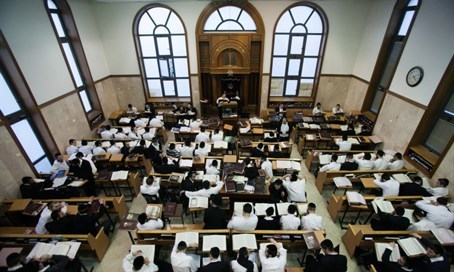
An Unequal Share of the Burden? The Truth about the Hesder Yeshivot
Written By: Prof. Benjamin Porat
Do students in the religious Zionist hesder yeshivot really contribute less to the IDF than other men who serve? IDI Researcher Dr. Benny Porat does the math and comes to an interesting conclusion.
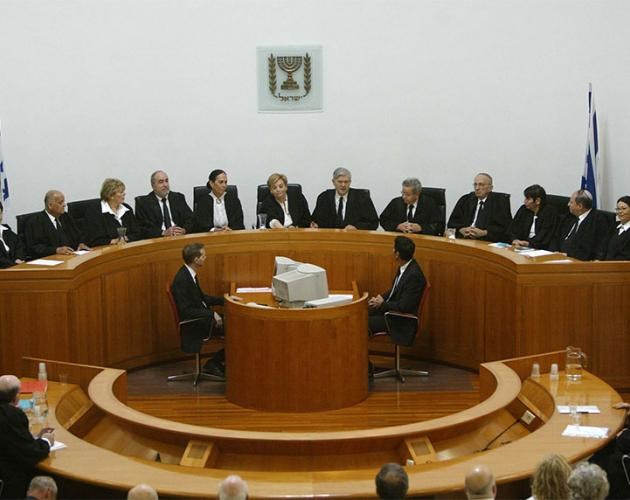
The Haredi Draft: Is the Shaked Committee's Bill Destined to be Overturned?
Written By: Prof. Yedidia Z. Stern
As the Shaked Committee begins to vote on its proposal for the Haredi draft, Prof. Yedidia Z. Stern warns that the proposal's recommendation to exempt Haredi men of draft age during a three-year "adjustment period" is both inequitable and ineffective.

Civil Unions for All
Written By: Prof. Shahar Lifshitz
Prof. Shahar Lifshitz explains why IDI's proposal for civil unions, which was first presented in his IDI policy paper The Spousal Registry, is the best solution possible today for alleviating the distress of couples who cannot or do not want to marry in a religious ceremony in Israel.

Non-Jews in a Jewish State: Searching for a New Paradigm
Written By: Kalman Neuman
In an article in The Jewish Week, Rabbi Dr. Kalman Neuman of IDI's Religion and State project examines some of the thorny questions of Jewish law when it comes to non-Jews in a Jewish state.
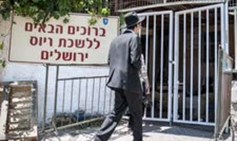
The Haredi Draft: Equality Now?!
Written By: Prof. Yedidia Z. Stern
On November 21 2013, Prof. Yedidia Z. Stern appeared before the Shaked Committee and argued that criminal sanctions are not recommended for reaching conscription goals. In an op-ed in Makor Rishon, he explains why.

On the Need for Civil Unions in Israel
Written By: Benjamin (Benny) Lau
Rabbi Dr. Benjamin (Benny) Lau expresses support for the proposed civil union bill, which would allow couples who do not want to marry in a religious service to form a legally recognized union and be eligible for the benefits and responsibilities associated with marriage.

Civil Unions in Israel as a Democratic Compromise
Written By: Prof. Shahar Lifshitz
Prof. Shahar Lifshitz, author of an IDI policy paper proposing a spousal registry as a framework for civil unions in Israel, welcomes the reintroduction of this issue to the public agenda but expresses some concern about the formulation of the current bill.

"Who Made Me a Woman": Women in Ultra-Orthodox Society
Written By: Lee Cahaner
A series of Hebrew videos on the historical processes behind the development of the role of ultra-Orthodox women in the family and society, which were developed as part of IDI's research projects on the Nation State and on the Integration of Haredim in Israeli Society.
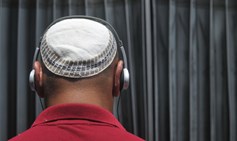
No to the Separation of Religion and State in Israel
Written By: Yair Sheleg
Should the American model of separation of church and state be applied to Israel? In an article in <em>The Jewish Week</em>, IDI's Yair Sheleg argues that Israel needs a unique model.
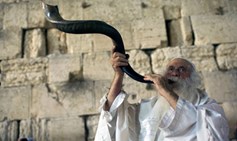
Standing before God: Reflections on Yom Kippur
Written By: Yair Sheleg
Why is Yom Kippur the most significant day on the Jewish calendar? What explains its appeal even to people who define themselves as "secular"? IDI research fellow Yair Sheleg shares his thoughts on this matter.

The High Holidays: A Personal and National Time
Written By: Prof. Yedidia Z. Stern
Prof. Yedidia Z. Stern shares thoughts on the Hebrew calendar, which contributes to Jewish unity and preserves the Jewish people as a single national and cultural unit.

The Jewish and Democratic State: Zionism is Not Racism
Written By: Dr. Amir Fuchs
In an op-ed in Haaretz, Attorney Amir Fuchs asserts that Israel is both the nation-state of the Jewish people and a democratic state, despite the confused Zionism of Mayor Shimon Gapso of Upper Nazareth.
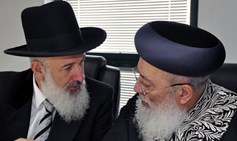
The Chief Rabbinate: A Religious Version of the State President
Written By: Yair Sheleg
In an op-ed in Maariv, Yair Sheleg argues that the current roles of the Israeli chief rabbinate should be split and the rabbinate should serve solely in its representative capacity in the future.

Haredi Integration: Not by Re-Education
Written By: Haim Zicherman
IDI researcher Attorney Haim Zicherman warns against attempts to integrate ultra-Orthodox Jews into the army by encouraging them to abandon their lifestyle, and calls for developing mechanisms that will accept and respect their values.
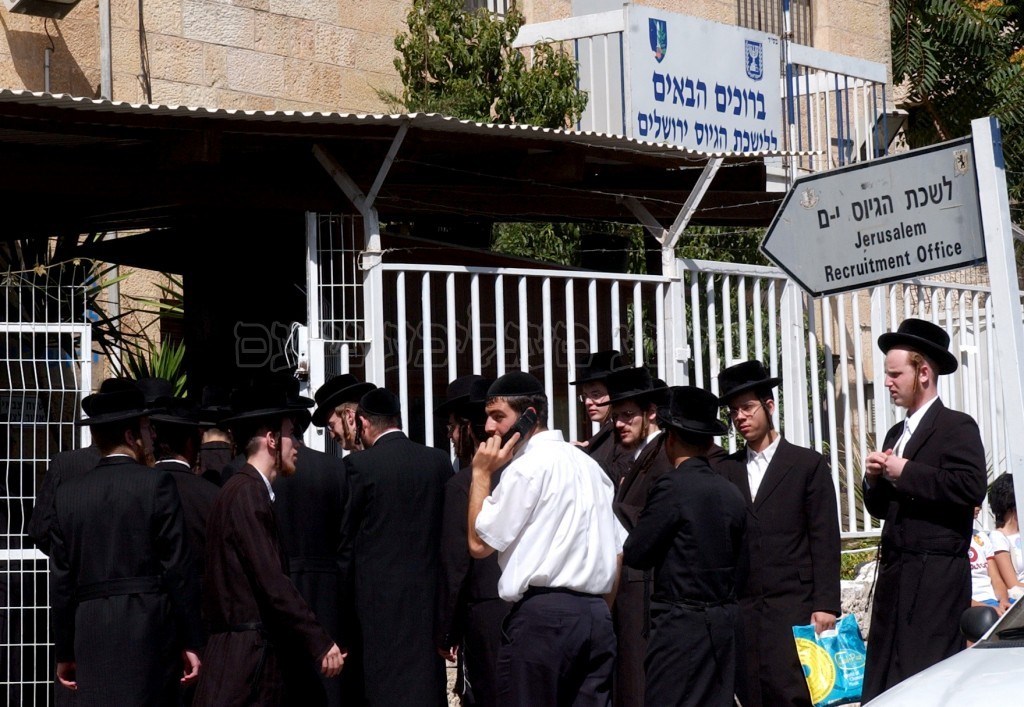
The Peri Committee Recommendations: Fanning the Flames of Haredi Extremism
Written By: Prof. Yedidia Z. Stern
IDI Vice President of Research Prof. Yedidia Stern warns that the Peri Committee recommendations on the ultra-Orthodox draft will undo progress already made in integrating Israel's Haredi community into Israeli society.
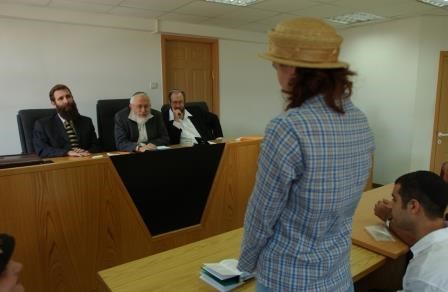
Conversion in Israel: From Bethlehem to Chelm to Sodom
Written By: Prof. Yedidia Z. Stern
IDI Vice President Prof. Yedidia Stern responds to the State Comptroller's findings on conversion in Israel and calls for a solution that will enable Israelis from the former Soviet Union to join the ranks of the Jewish people.
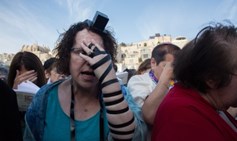
Israeli Public Opinion on the Women of the Wall
Written By: Prof. Tamar Hermann
IDI Senior Fellow Prof. Tamar Hermann, head of IDI's Guttman Center for Surveys, shares findings on the Israeli Jewish public's support of the right of the Women of the Wall to pray while wearing prayer shawls and phylacteries.
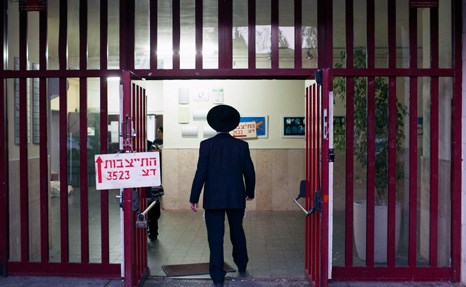
The Haredi Draft: The Need for an Alliance of the Moderates
Written By: Prof. Yedidia Z. Stern
Prof. Yedidia Stern calls for a historic alliance between religious and secular moderates that will yield a solution that will that will yield a solution that addresses the need for ultra-Orthodox army service while taking into account the most important values of the Haredi community.

The Need for Equal Sharing of the Burden and Strengthening of Torah Study
Written By: Prof. Benjamin Porat
The need for the ultra-Orthodox community in Israel to share the burden of military service and participate equally in the Israeli economy was a central issue in the 2013 elections. IDI researcher Dr. Benny Porat shares his thoughts on how to bring about this change in the Haredi community.

The Comeback of Polarization
Written By: Prof. Benjamin Brown
IDI researcher Dr. Benjamin Brown discusses the sense of attack experienced by the Haredi community in the 2013 election campaign and calls for a process of gradual change in integrating the ultra-Orthodox in the Israeli army and workforce.

A Coalition of Hope
Written By: Prof. Yedidia Z. Stern
Following the elections of 2013, IDI Vice President Prof. Yedidia Z. Stern hails the incoming Knesset as a unique opportunity to change the nature of the State of Israel so that it is both more Jewish and more democratic at the same time.
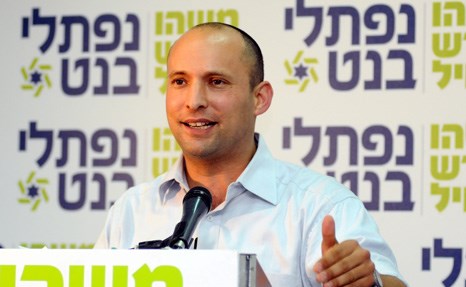
Habayit Hayehudi and Refusal of Orders: The Real Question
Written By: Prof. Yedidia Z. Stern
Naftali Bennett's statement that he would refuse orders if commanded to evacuate settlements raises questions about the type of insubordination that he and his party condone. In an op-ed in Yedioth Ahronoth, Prof. Yedidia Stern calls on Habayit Hayehudi to clarify its position on the matter.

The Haredim and the State of Israel
Written By: Prof. Yedidia Z. Stern, Jay Ruderman
In an op-ed in The Jerusalem Post, IDI's Prof. Yedidia Stern, who served on the Plesner Committee for Equality in National Service, and Mr. Jay Ruderman analyze the Haredi community's reluctance to serve in the Israeli army and present an approach that will facilitate Haredi integration into Israel's army and society.

Do Not Put an End to Ultra-Orthodox Army Service
Written By: Haim Zicherman
Following the dissolution of the Committee to Advance Equality in Sharing the Burden, committee head MK Yohanan Plesner submitted proposals for alternatives to the Tal Law. In this article, IDI Researcher Attorney Haim Zicherman, who served as the content coordinator of the Plesner Committee, warns that some of those measures were personal recommendations rather than recommendations of the Committee, and may reverse trends of increasing army service by ultra-Orthodox Jews.

The Tal Law: Judicial Activism at its Height
Written By: Prof. Yedidia Z. Stern
The Supreme Court's decision to strike down the Tal Law, after 30 years of avoiding the issue of the exemption of ultra-Orthodox Jews from military service, is an expression of judicial activism that illustrates the transformation that the Israeli Supreme Court has undergone in the last generation. In this op-ed, originally published in Hebrew in <em>Makor Rishon</em>, IDI Vice President Prof. Yedidia Stern asserts that the Court went too far in this ruling and that its activism is hard to justify.

If They Give, They Will Receive
Written By: Yair Sheleg
In this response to the Supreme Court ruling on the Tal Law, IDI Senior Researcher Yair Sheleg asserts that the exemption of ultra-Orthodox men from military service is an unparalleled <em>Hillul Hashem</em>—a desecration of the Name of God, and shares his views of a possible solution.

Make the Ultra-Orthodox Serve
Written By: Yair Sheleg
IDI Vice President of Research Prof. Yedidia Stern sets the controversy over mass transportation on Shabbat and holidays in Israel in a broader context, and distinguished between the need for an Israeli-Jewish Shabbat (Sabbath) rather than a religious Shabbat.
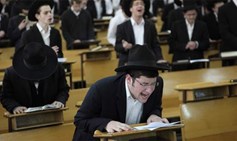
In the Aftermath of the Tal Law
Written By: Prof. Yedidia Z. Stern
Will the Israeli Supreme Court's ruling that the Tal Law is unconstitutional really guarantee that the burden of Israel's defense will be shared equally by the country's citizens? IDI's Prof. Yedidia Stern warns that this ruling may actually hinder the integration of the Haredi community into Israeli society rather than promoting it.

Finding Middle Ground
Written By: Haim Zicherman
In an op-ed in Israel Hayom, IDI researcher Adv. Haim Zicherman argues that a temporary extension of the Tal Law would help the growing trend of ultra-Orthodox enlistment in the IDF and would enable volunteering for civilian service to continue.

Religious Incitement: A Test Case for Freedom of Speech?
Written By: Prof. Yedidia Z. Stern
In an op-ed in Yedioth Ahronoth, IDI Vice President Yedidia Z. Stern responds to the proposed "Dov Lior Bill" and decries the possibility that members of the clergy—of any religion—be above the law and immune from prosecution for incitement to violence when their religious teachings may encourage criminal behavior.
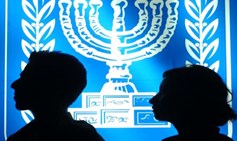
The Founding Vision: Israel as a Democratic State. Period.
Written By: Shulamit Aloni
The question of who is a citizen of Israel is tied to many issues in the forefront of debate in Israel. In this article, guest columnist Former MK Shulamit Aloni focuses on the democratic nature of the State of Israel, and particularly the concept of equality, as the foundation on which citizenship rests, and decries recent racist undercurrents observed in Israeli society, which she sees as contrary to the founding vision of the State.

Who is Entitled?
Written By: Aryeh Eldad
The question of who is a citizen of Israel is tied to many issues in the forefront of debate in Israel: questions regarding the Jewish and democratic nature of the state, questions regarding conversion, and questions regarding the absorption of refugees and foreign workers into Israeli society. In this article, guest columnist MK Aryeh Eldad shares his views on who is entitled to be and who should be a citizen of the State of Israel.

Who Really Cares about Converts?
Written By: Prof. Yedidia Z. Stern, Netanel Fisher
On July 12, 2010, the Knesset’s Constitution, Law, and Justice Committee approved a controversial draft bill on conversion reform. Presented as an effort to make conversion more accessible to hundreds of thousands of Israeli citizens who are not Jewish according to state and religious law, the proposed legislation sparked an outcry both in Israel and the Diaspora. In this article, IDI Researcher Netanel Fisher exposes the dangerous linkage between conversion and the status of Judaism's non-Orthodox movements and assesses the likelihood of the bill achieving its goals.

From Ruth to Natasha
Written By: Prof. Yedidia Z. Stern
In this article, IDI Vice President Prof. Yedidia Z. Stern explains the current conversion crisis in Israel, reviews the evolution of attitudes towards conversion in halakhic literature over the ages, and concludes with a proposal that is compatible with Jewish law while responding to pressing contemporary needs.

Decade in Review: Religion and State in Israel
Written By: Yair Sheleg
IDI Research Fellow Mr. Yair Sheleg highlights growing individualism within both the religious and secular Jewish populations in Israel and takes note of growing rifts between the two communities, in an article that was published at the end of the third millennium as part of a collaboration between IDI and Walla!, a popular Israeli website.

Rabbis vs. the Army: New Tensions between Religion and State
Written By: Kalman Neuman
Dr. Kalmen Neuman discusses the conflict faced by Orthodox soldiers who must choose between their religious commitment and the authority of the IDF when commanded to evacuate settlements.

Conversion – Implications for Jewish Culture and Peoplehood
Written By: Yair Sheleg
IDI Research Fellow Yair Sheleg argues that it is time to modify the requirements for those who wish to join the Jewish People, with the State overriding the religious establishment through legislation in order to resolve this issue, if necessary.

From a Shabbat of Work to a Shabbat of Rest
IDI Vice President of Research Prof. Yedidia Stern discusses the innovative Sabbath Law proposed by IDI. This proposed legislation seeks to a unique Israeli character in the public sphere on Shabbat and Jewish holidays, in a way which does not force religion on the public.

Religion and State: Is Israel Different than any Other Country on this Matter?
Written By: Yair Sheleg
Yair Sheleg investigates whether the separation of religion and state manifests itself differently in Israel than it does in other countries.

The Spousal Registry: Prof. Shahar Lifshitz Explains his Proposal
Written By: Prof. Shahar Lifshitz
The regulation of marriage and divorce in Israel is perceived by many as the main obstacle in attaining a constitution for Israel. Can the Spousal Registry Law help solve the discrepancies that subsequently arise? Dr. Shahar Lifshitz, author of a new Policy Paper on the topic, gives us his personal view.

Discourse on Disengagement: Sensationalism in the Mainstream Press
According to Tamar Guttman, a doctoral student in the Department of Anthropology and Sociology at Tel Aviv University, there is little room for enthusiasm regarding the way Israel’s mainstream media addressed the subject of the disengagement plan. In this article, originally published in The Seventh Eye on October 31, 2004, Guttman explains that the media was usually preoccupied with the petty, marginal, and sensationalist aspects of the initiative, systematically failing to examine the important issues raised by the withdrawal from Gaza or to ask difficult questions.
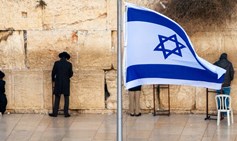
Time for a Historic Deal on Religion and State
Written By: Prof. Benjamin Porat
On questions of religion and state the tensions between the centralized and decentralized approaches can be misleading and creative rethinking might provides opportunities for achieving new agreements and a more balanced reality
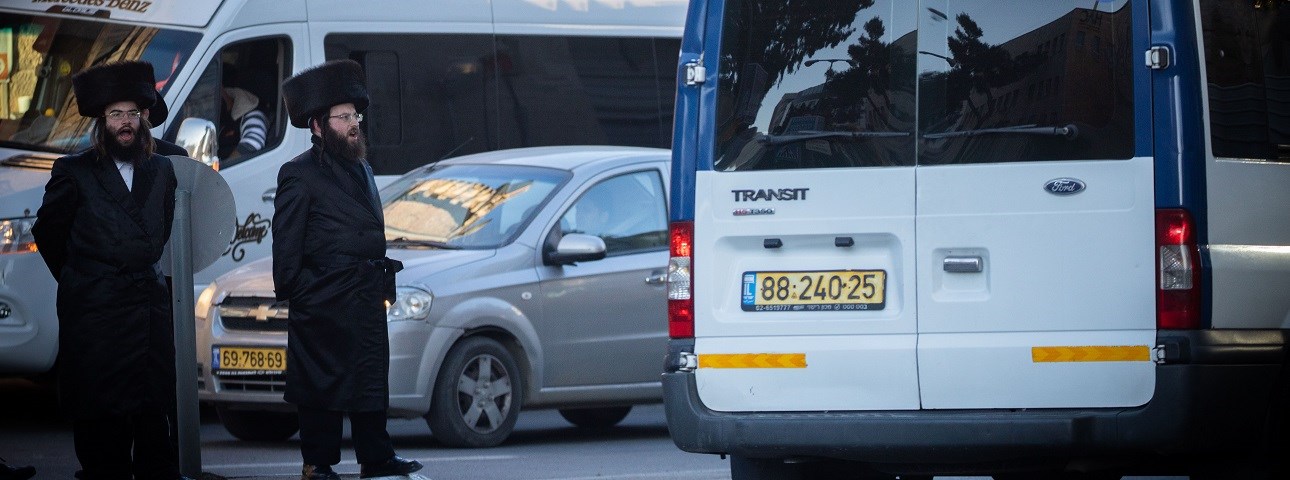
Will There Be Public Transportation for Secular Jews on Shabbat?
Written By: Prof. Daniel Statman
Is the insistence on preventing public transportation on Shabbat for those who would use it a lost cause - and should it even be a cause at all?

“Jewish” Versus “Democratic”
Written By: Yair Sheleg
The cause for the past year's political crisis lie in the ever-widening gap between the two main pillars of the State of Israel’s identity—its “Jewish” and “democratic” components.
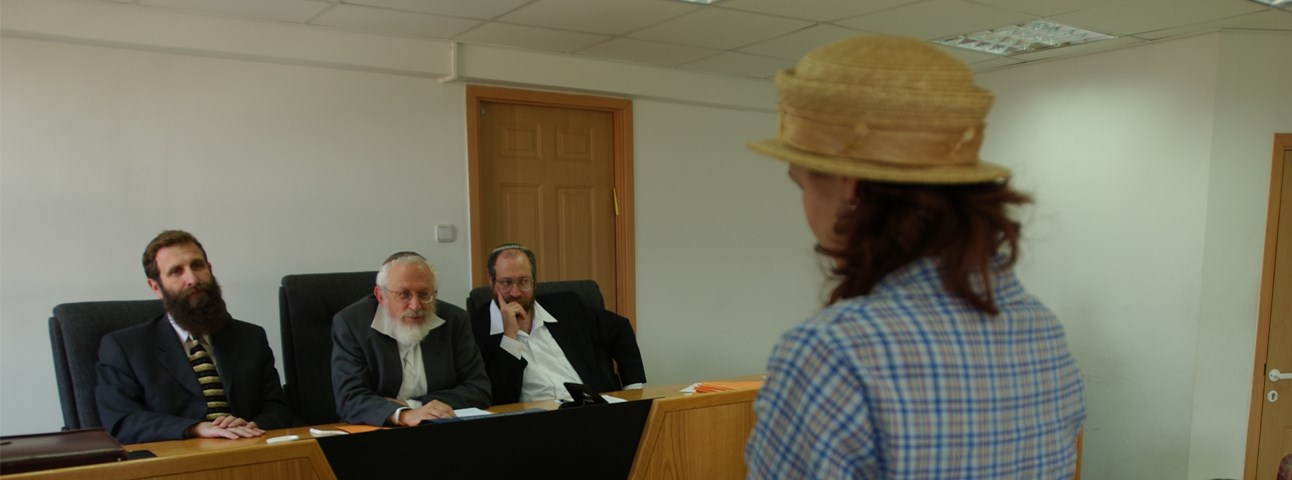
Conversion: Joining a Religion or Joining a Nation?
Written By: Prof. Yedidia Z. Stern
The rigid halakhic position might make conversion irrelevant as the integration of “non-Jewish Jews” into Israeli society will soon legitimize the sociological path to becoming a Jew, outside the bounds of religion, and make conversion superfluous.

Way of Life & Voting Patterns
Written By: Dr. Lee Cahaner, Dr. Gilad Malach, Dr. Maya Choshen
The fifth out of five chapters of the Statistical Report on Ultra-Orthodox Society in Israel

The Nation State law
Written By: Yohanan Plesner , Prof. Mordechai Kremnitzer, Prof. Yedidia Z. Stern
If Israel was founded as the state of the Jewish people, why is a nation-state law so problematic, having already toppled one government?
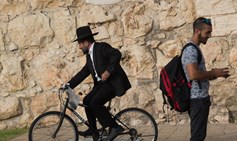
New IDI Survey: 46% of Religious Israelis Support a Change to the Religious Status Quo
A special IDI survey shows that 70% of secular Israelis believe that in recent years life in the public sphere has tended to favor the ultra-Orthodox and religious; over one-third of religious Israelis and 80% of people who define themselves as not religious but traditional either support the separation of religion from state or reducing religious influence on life in Israel.

IDI Scholar on Supreme Court Decision to Allow Supermarkets and Entertainment Establishments to Operate on Shabbat in Tel Aviv
“Instead of devising agreements through consensus on the matter of ‘resting on Shabbat’ as we do on other topics, we have a state of legal and procedural chaos,” explained Dr. Shuki Friedman. “It’s a situation of each man for himself.”

Israel Democracy Institute Scholar Responds to High Court Deliberations on the “Agunah of Safed”
Dr. Shuki Friedman says the attempt to threaten a woman’s freedom after it was given to her three years ago by the local beit din in Safed is horrifying.





